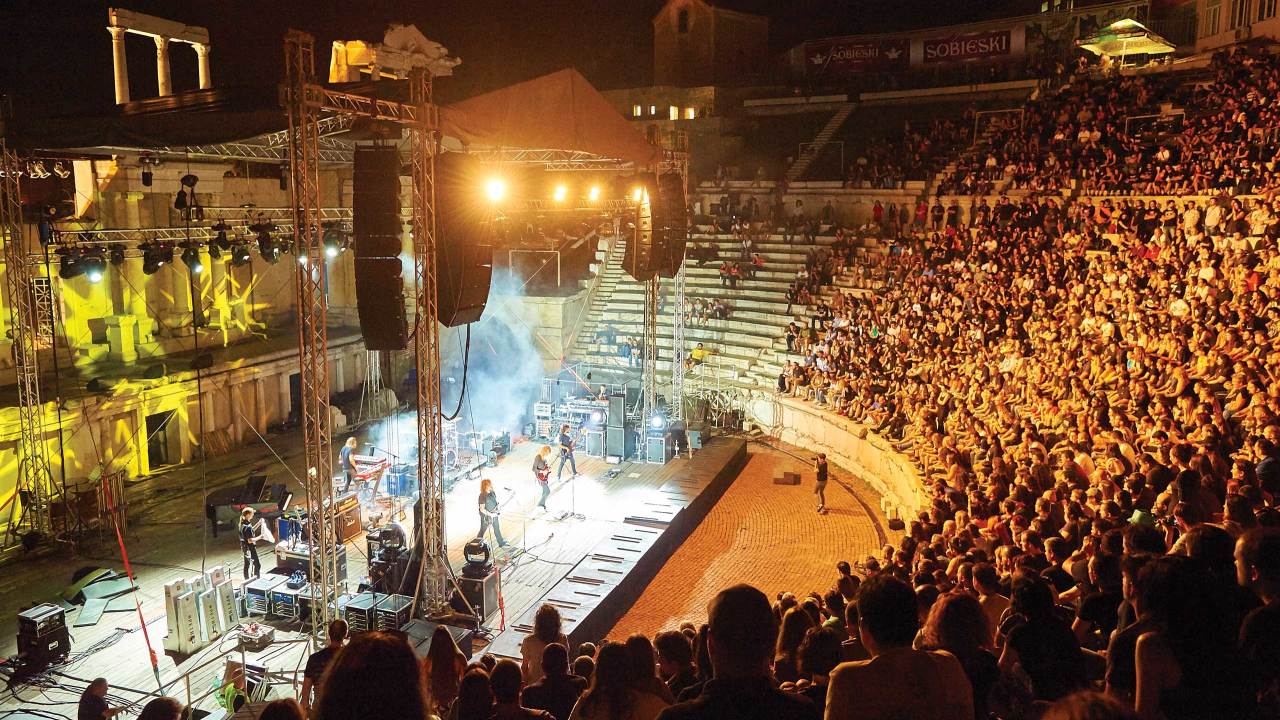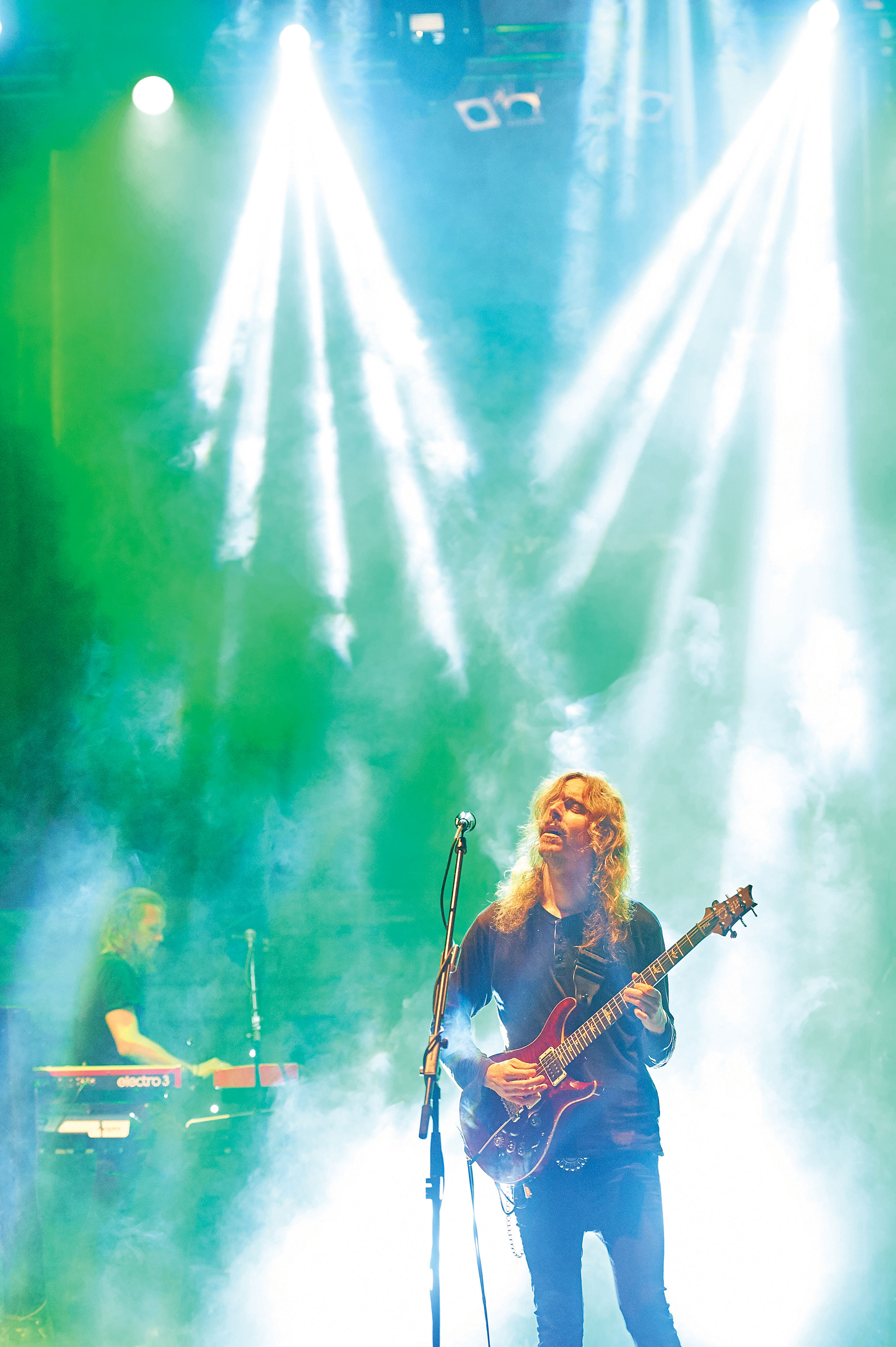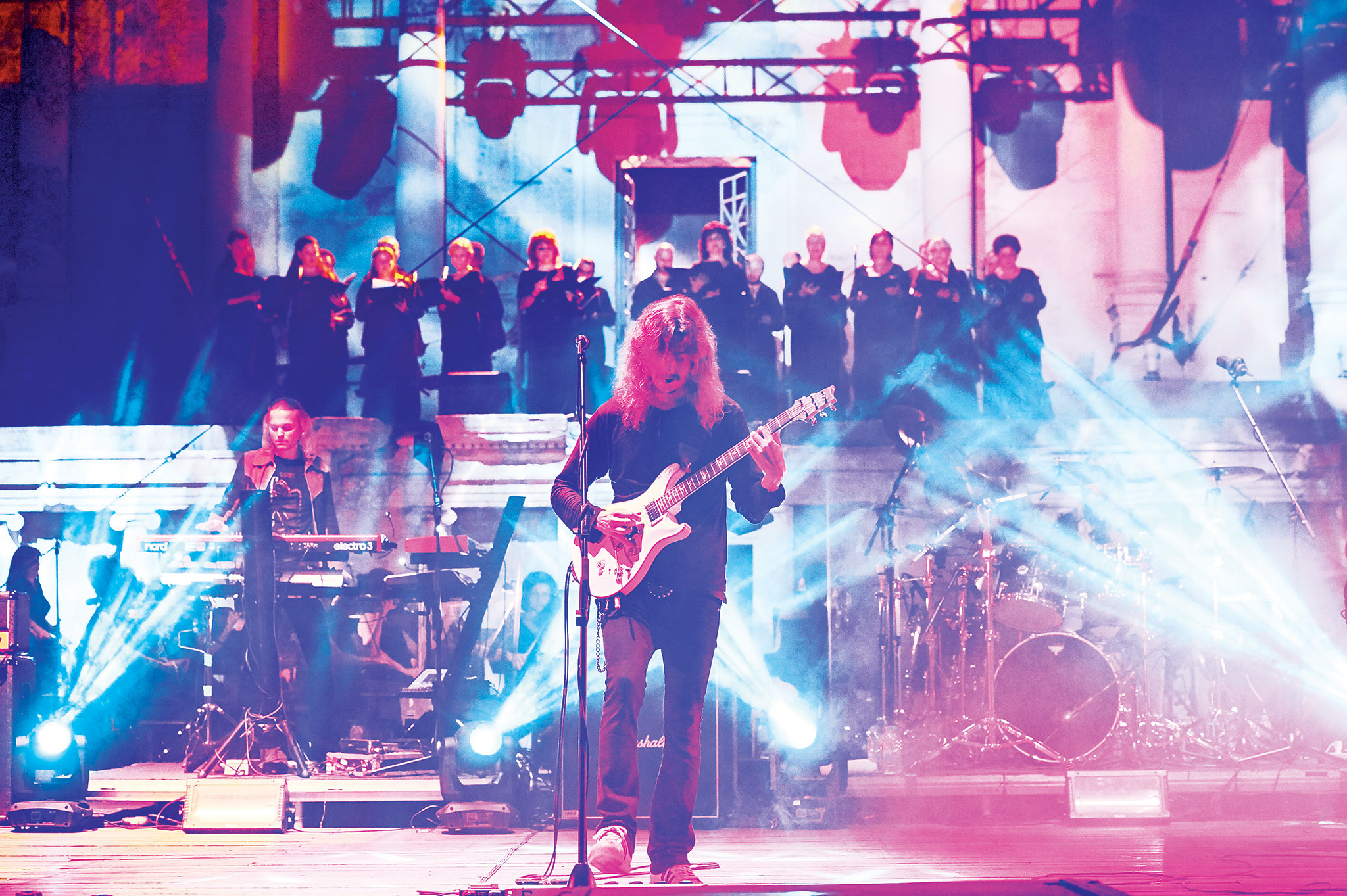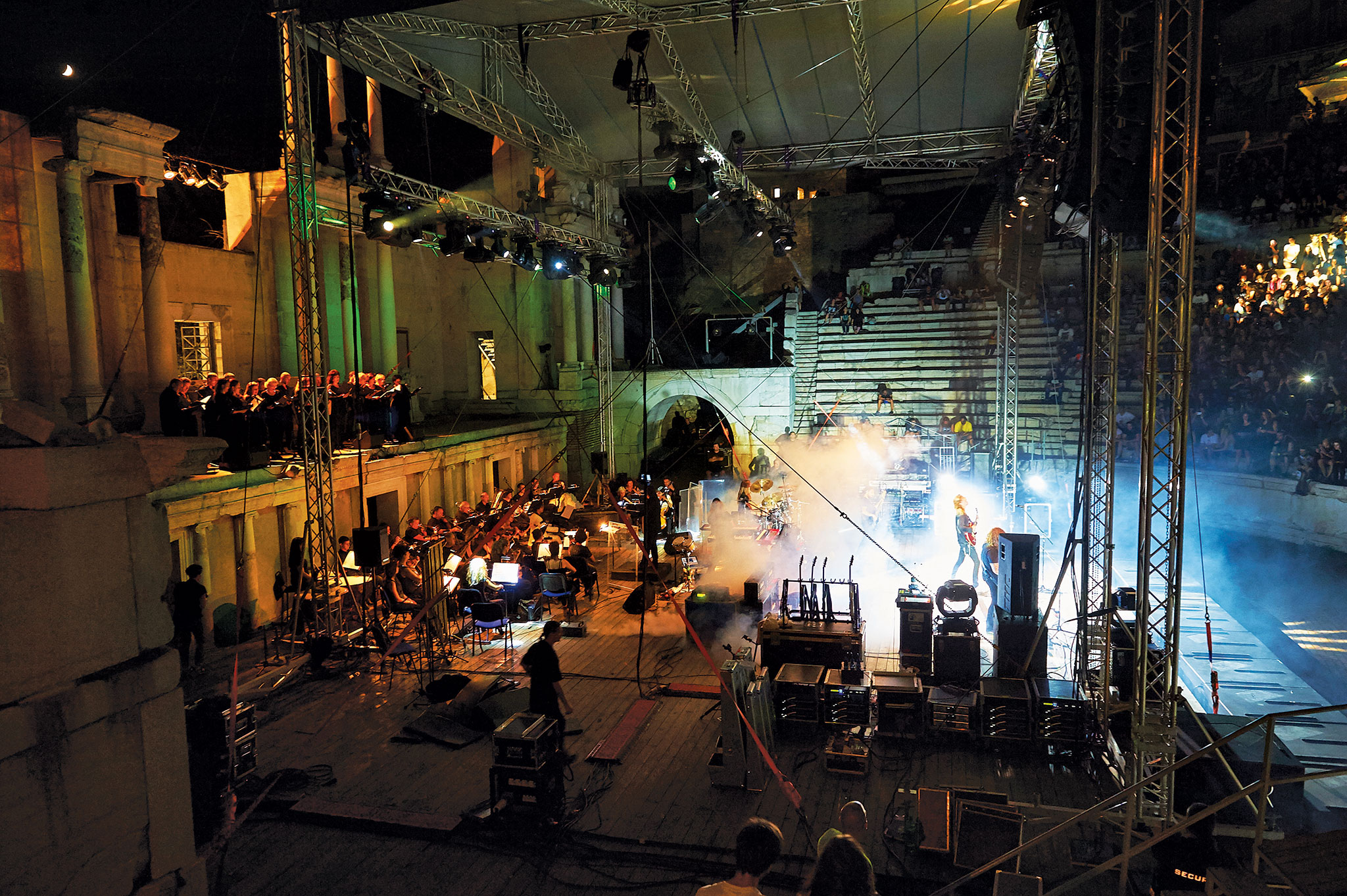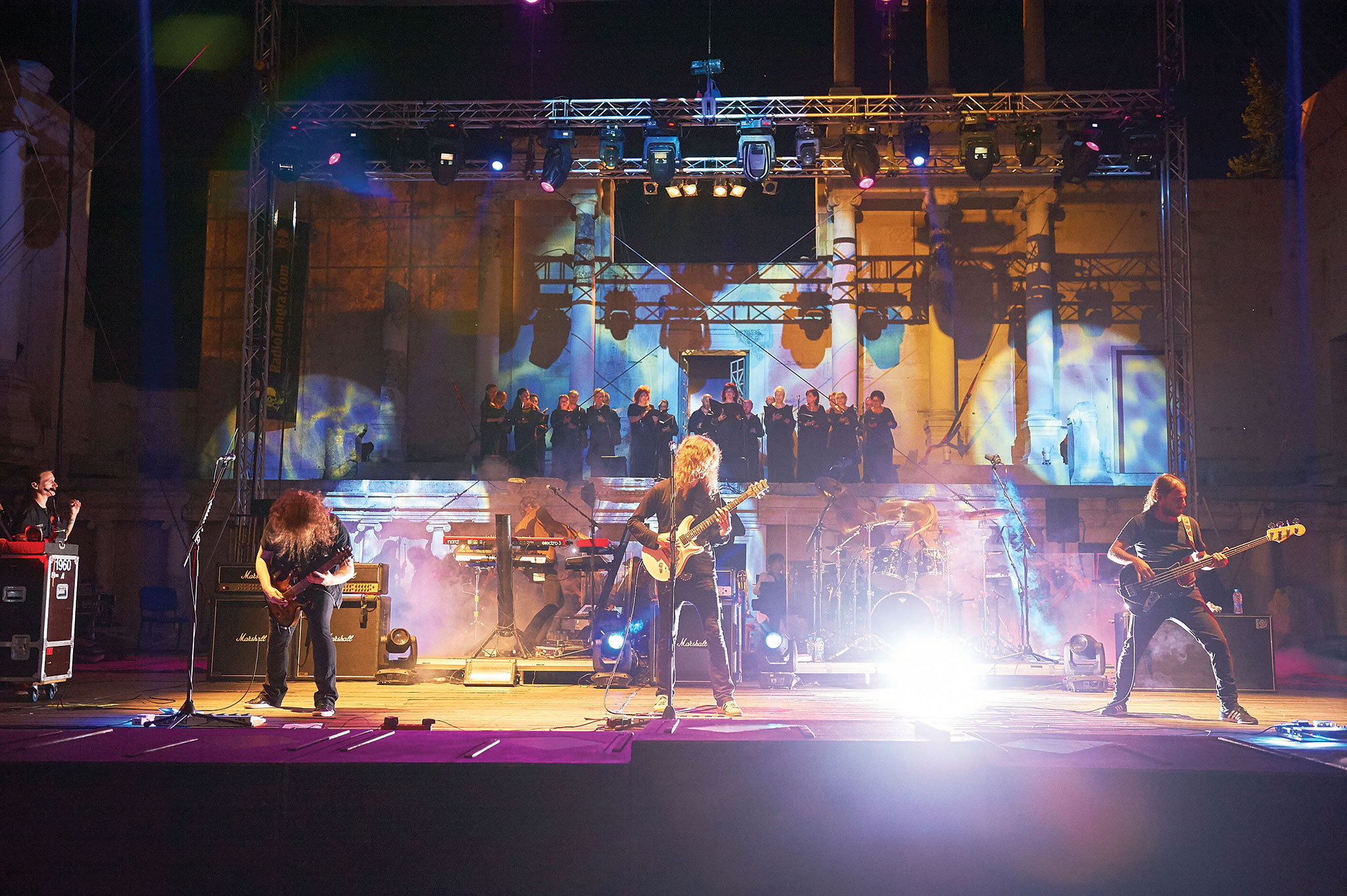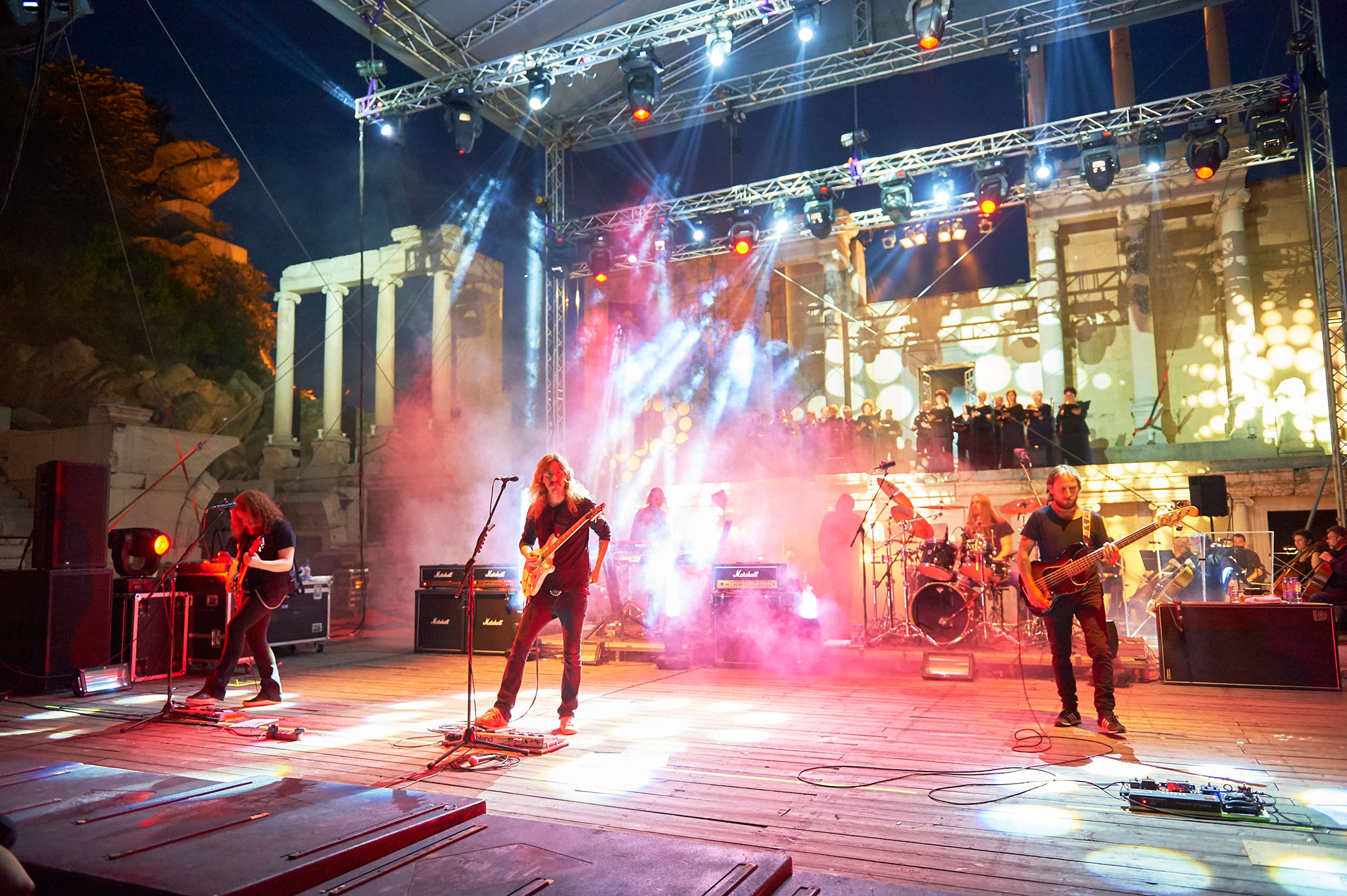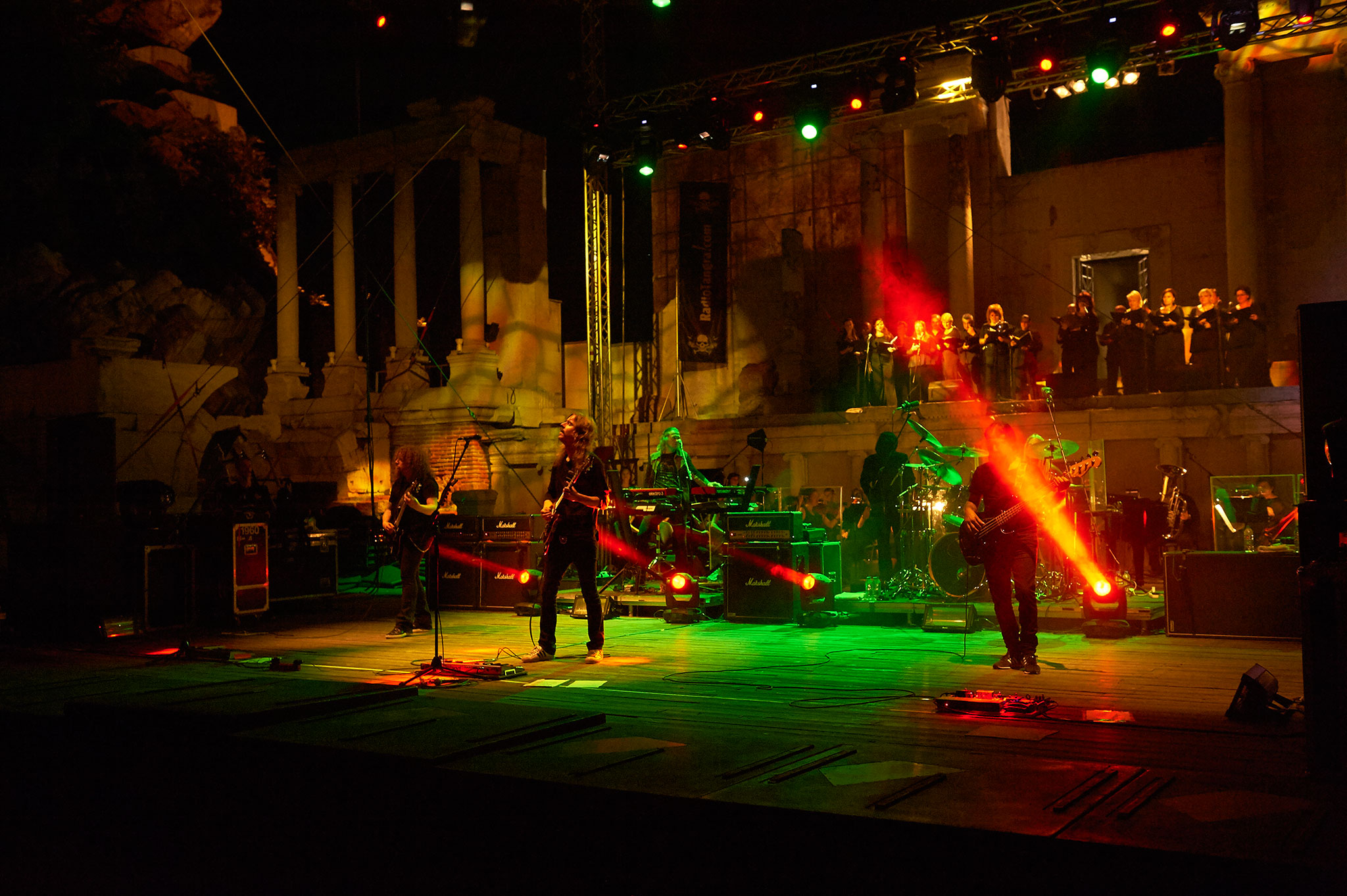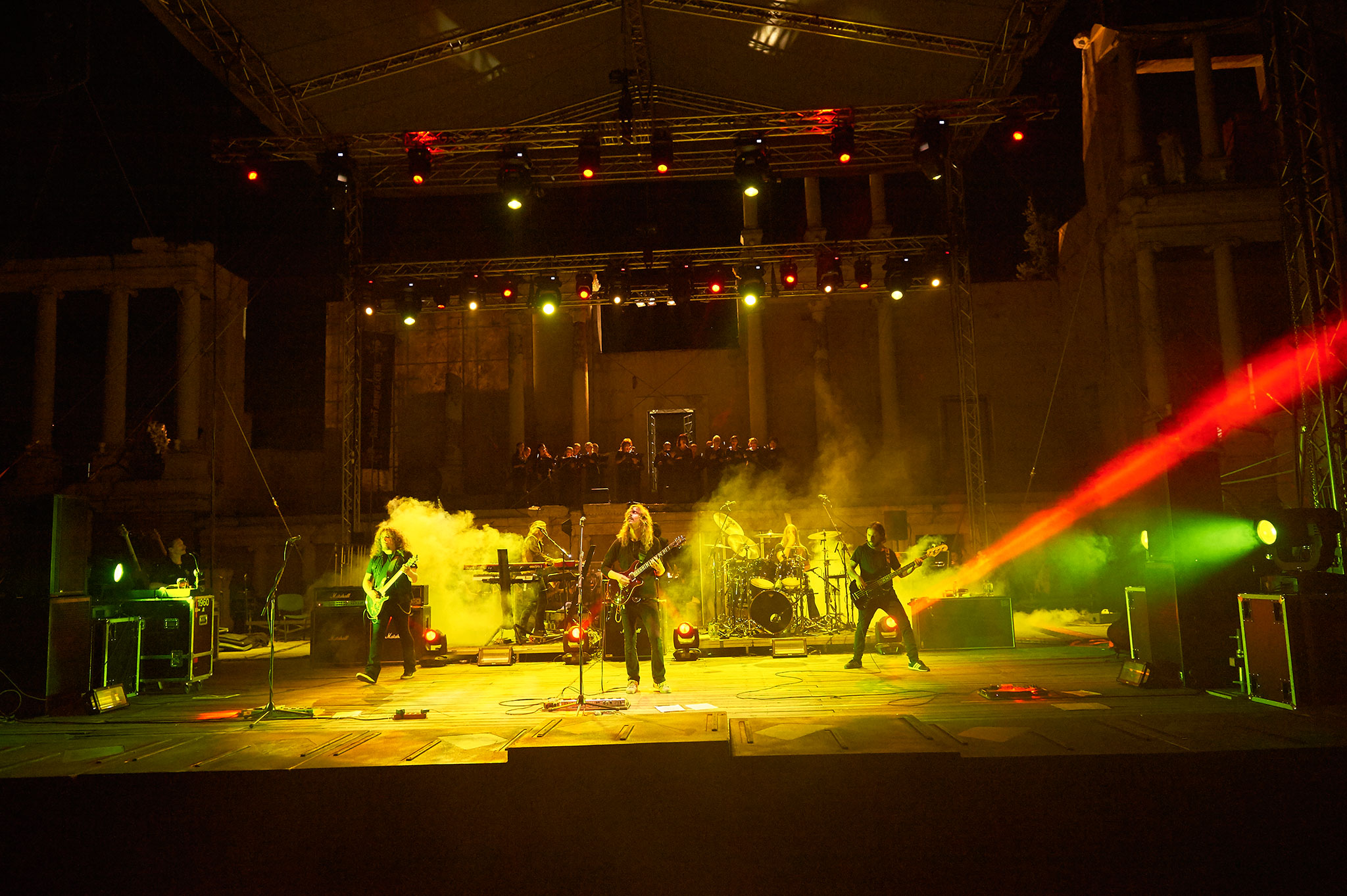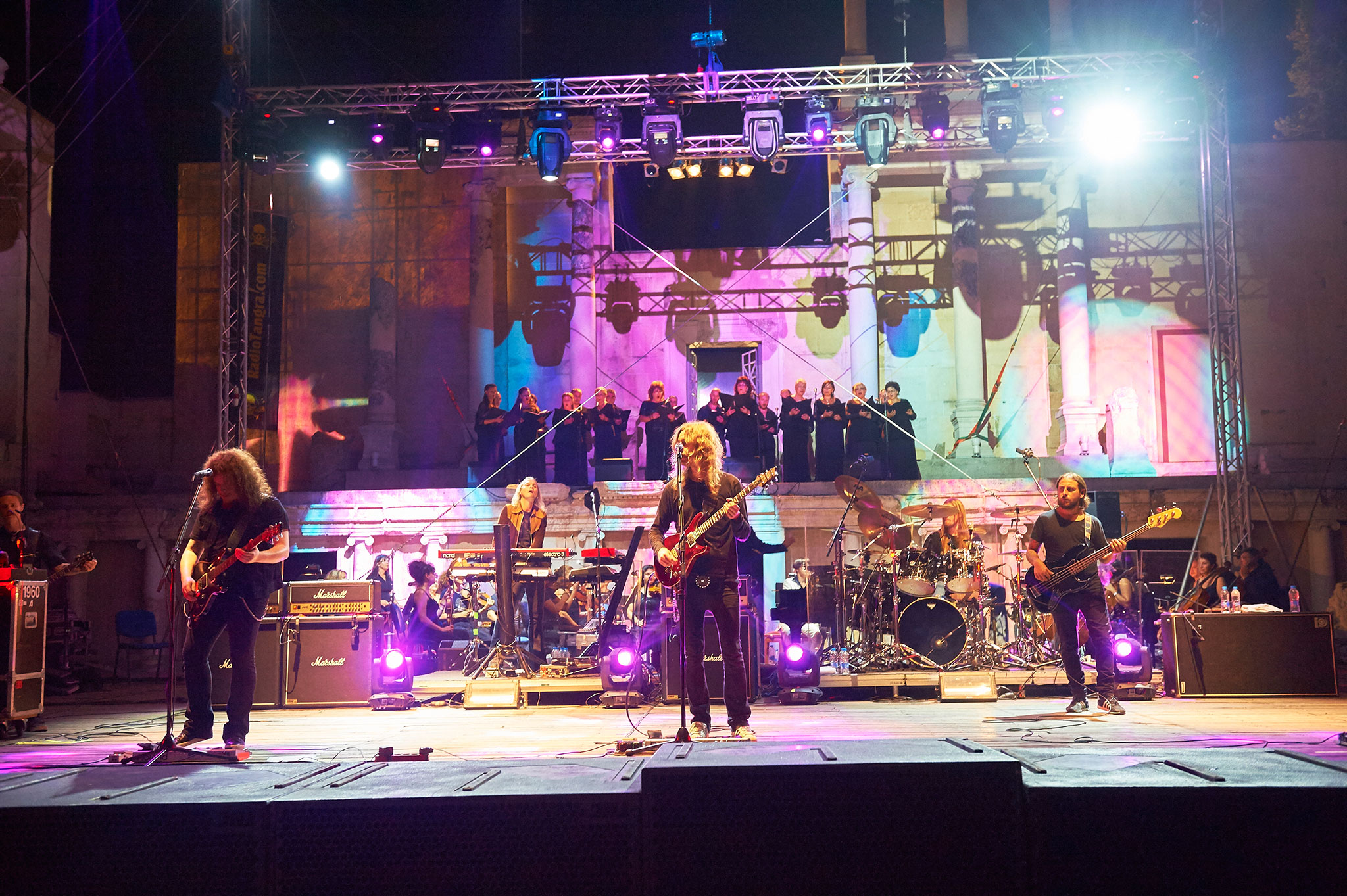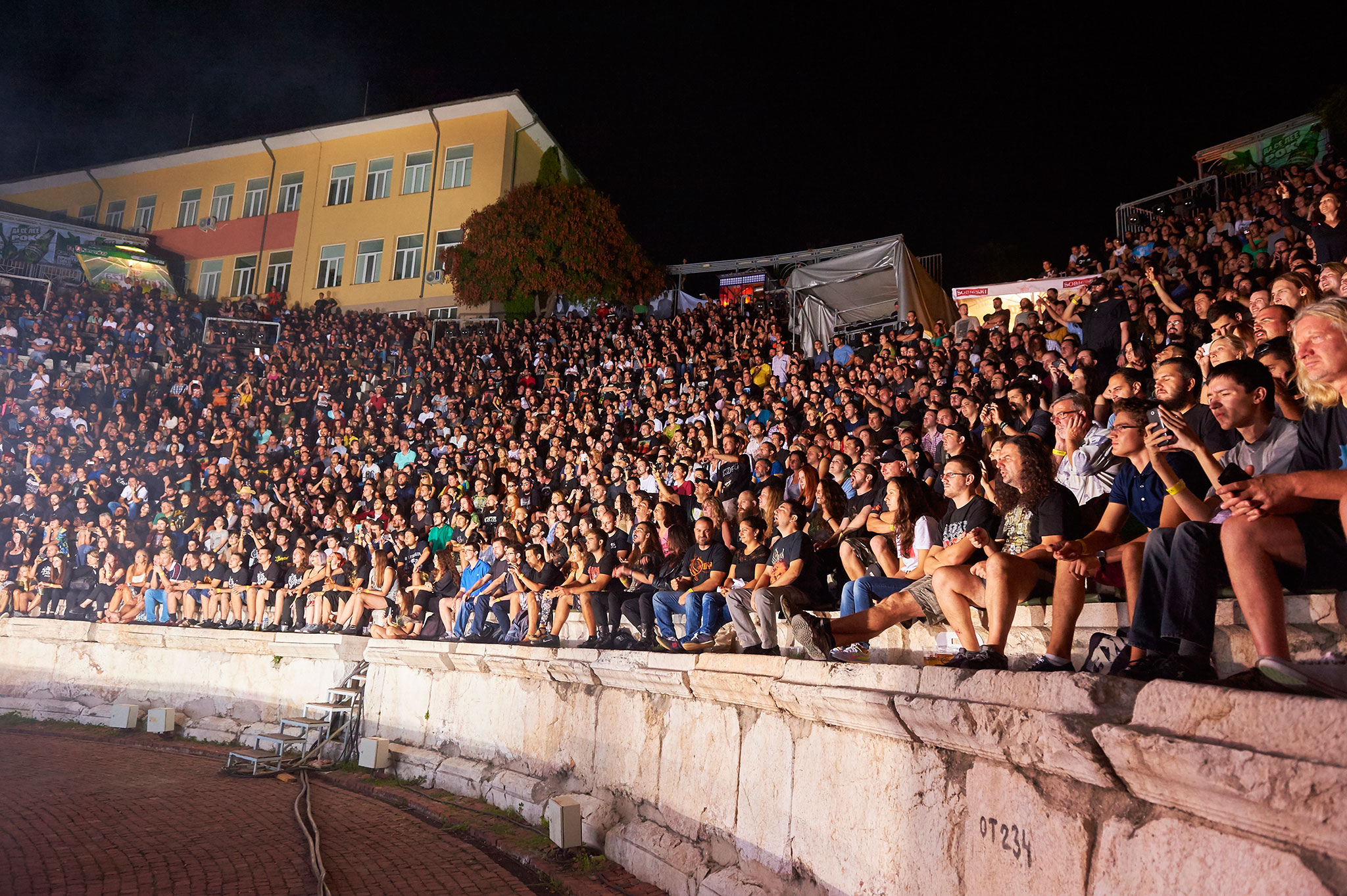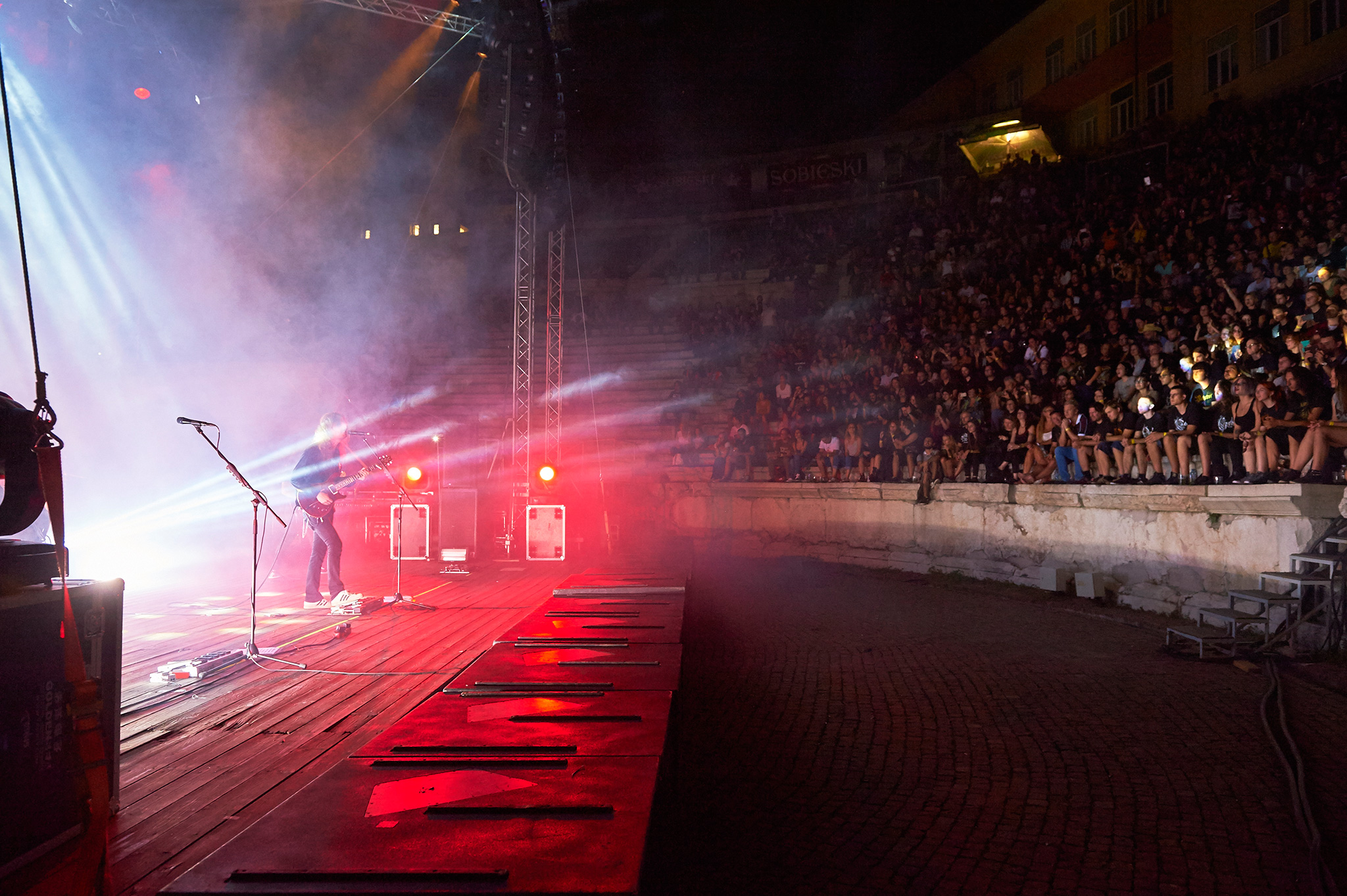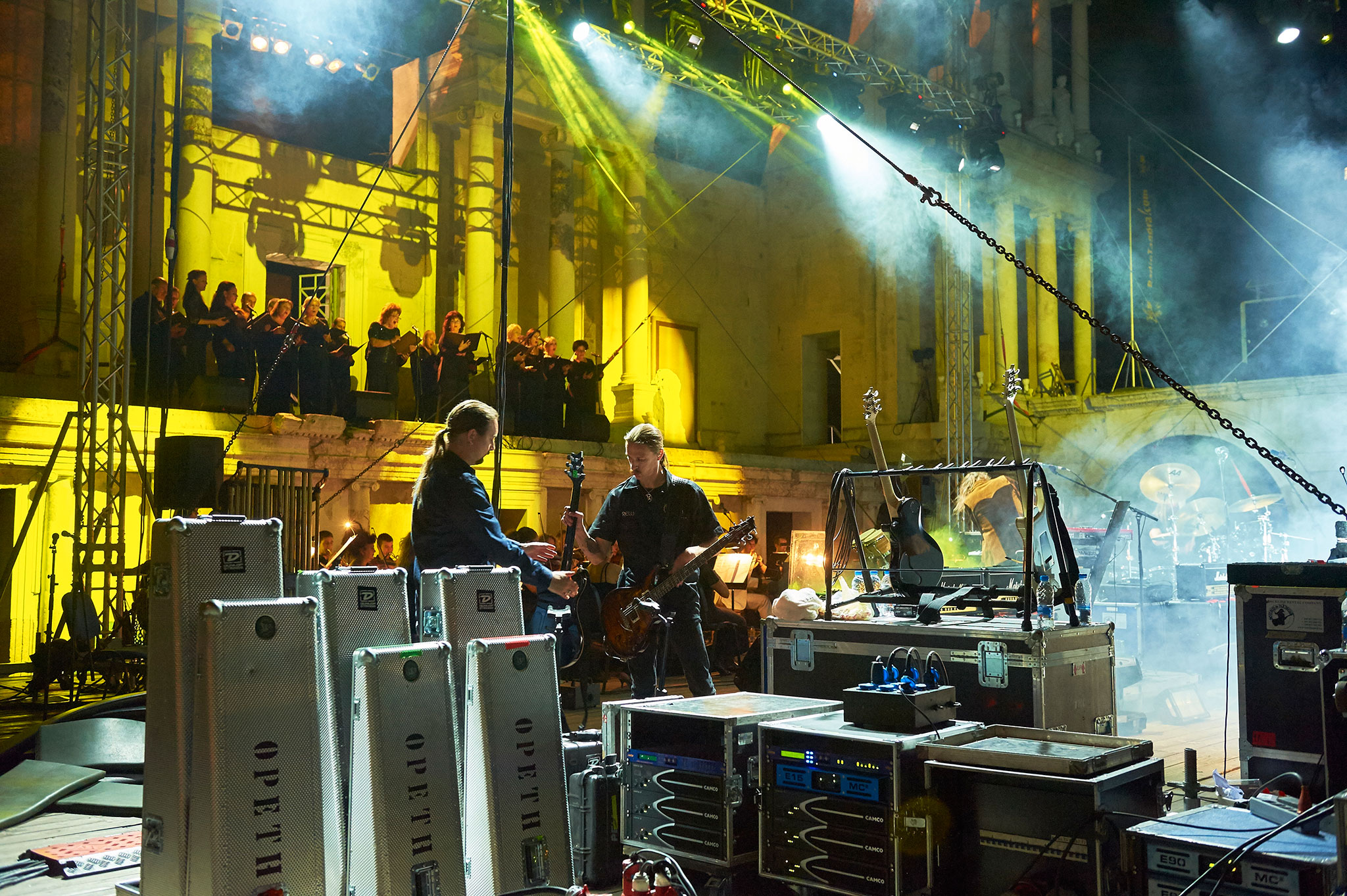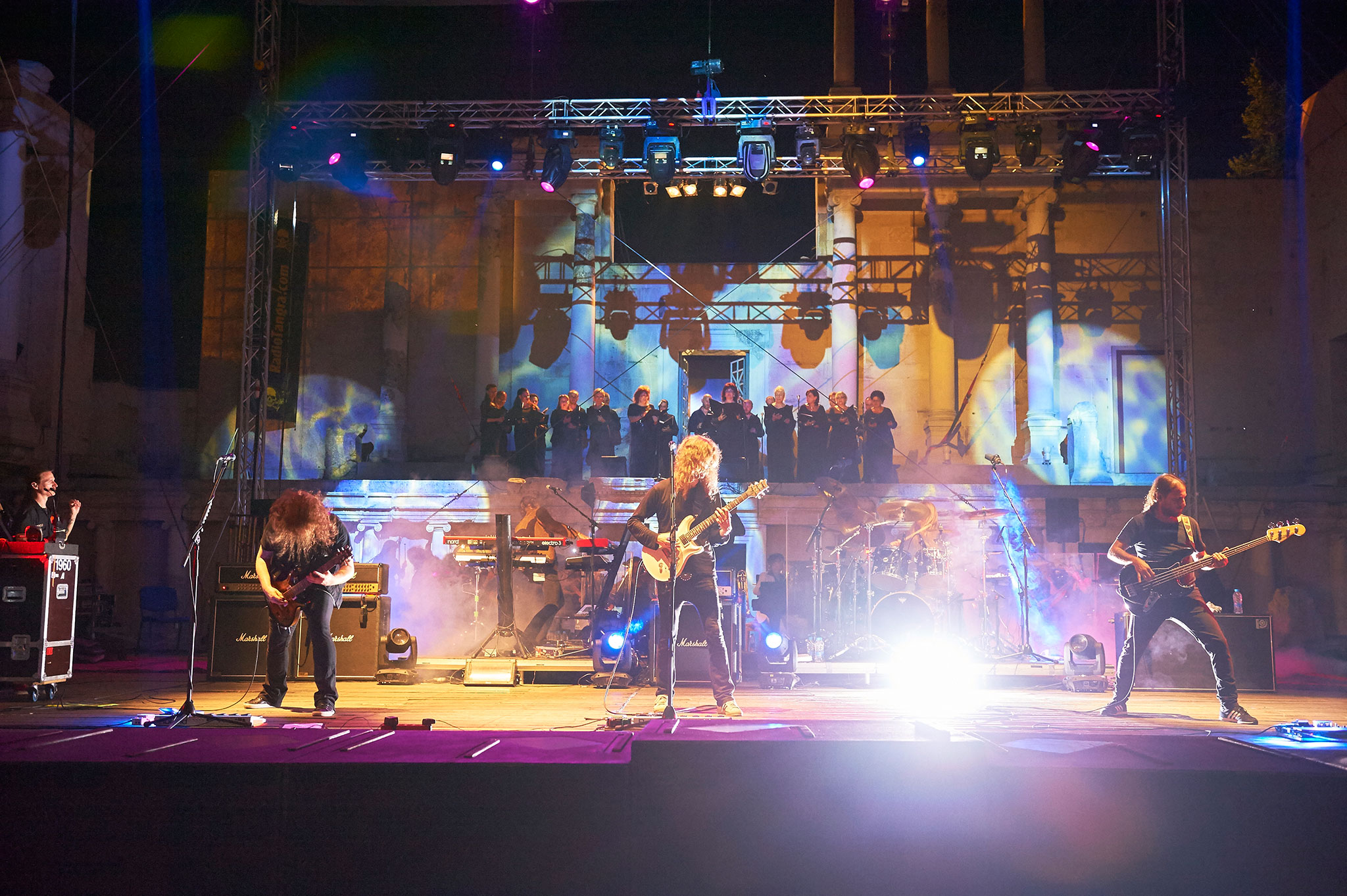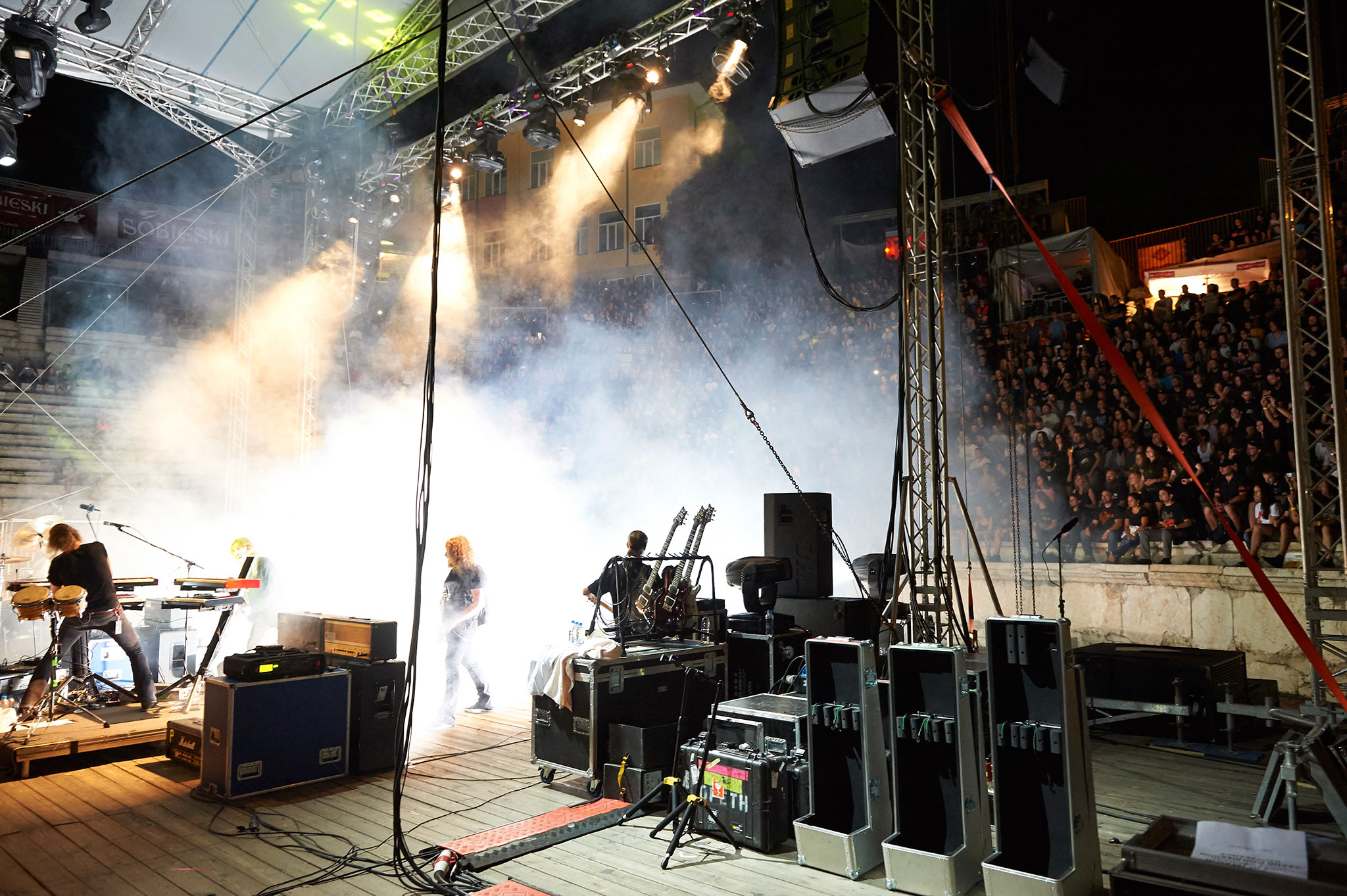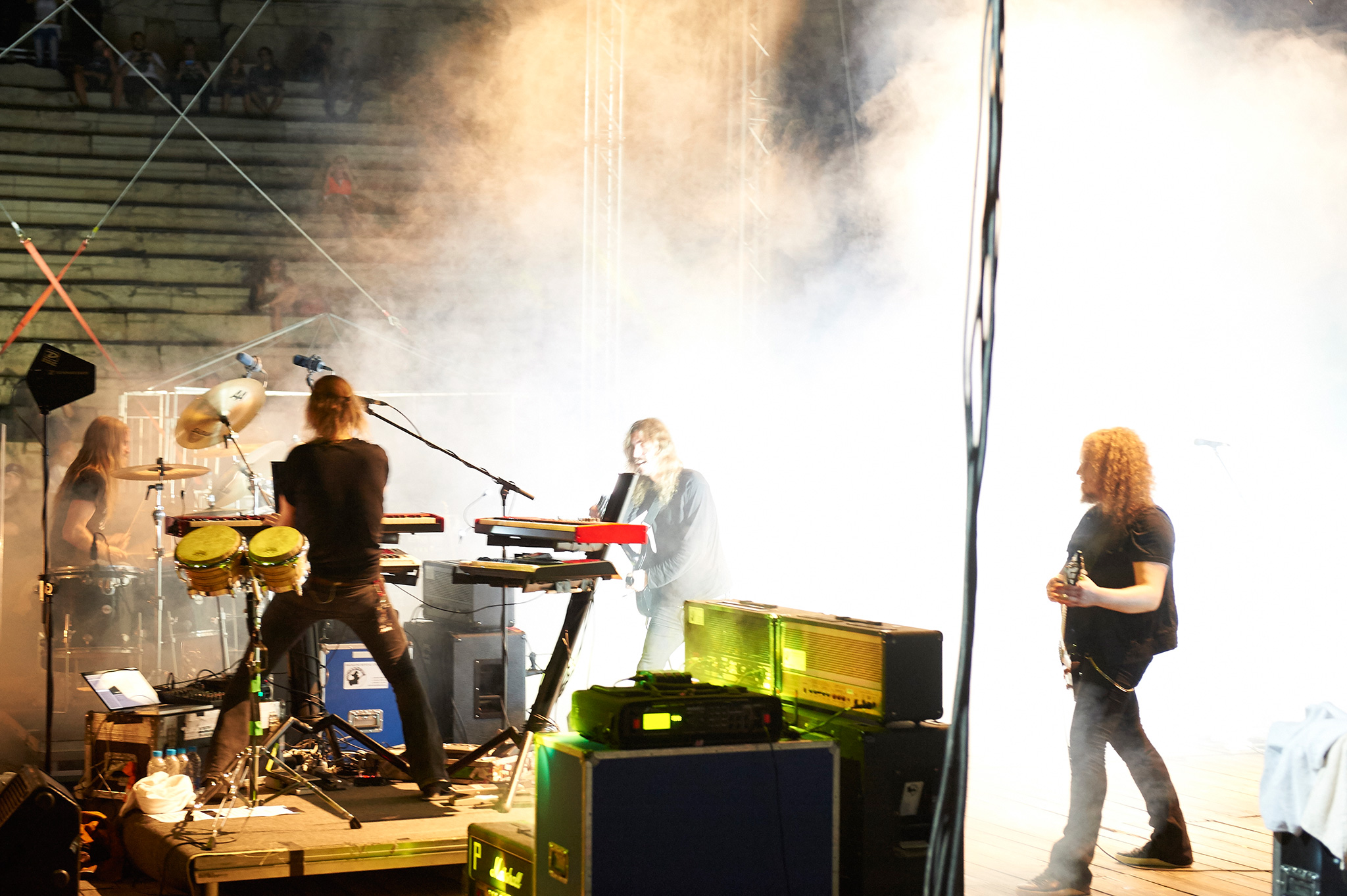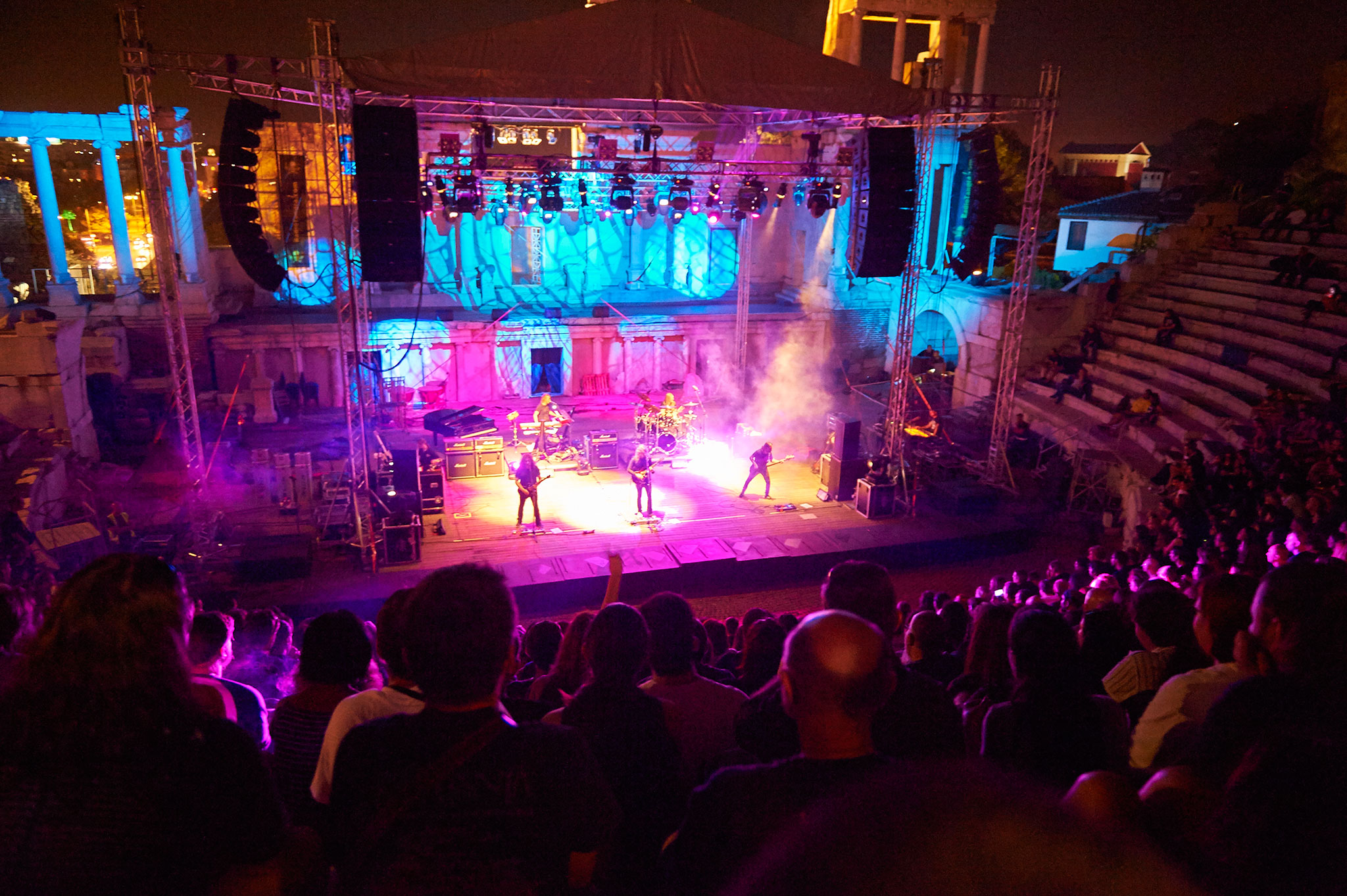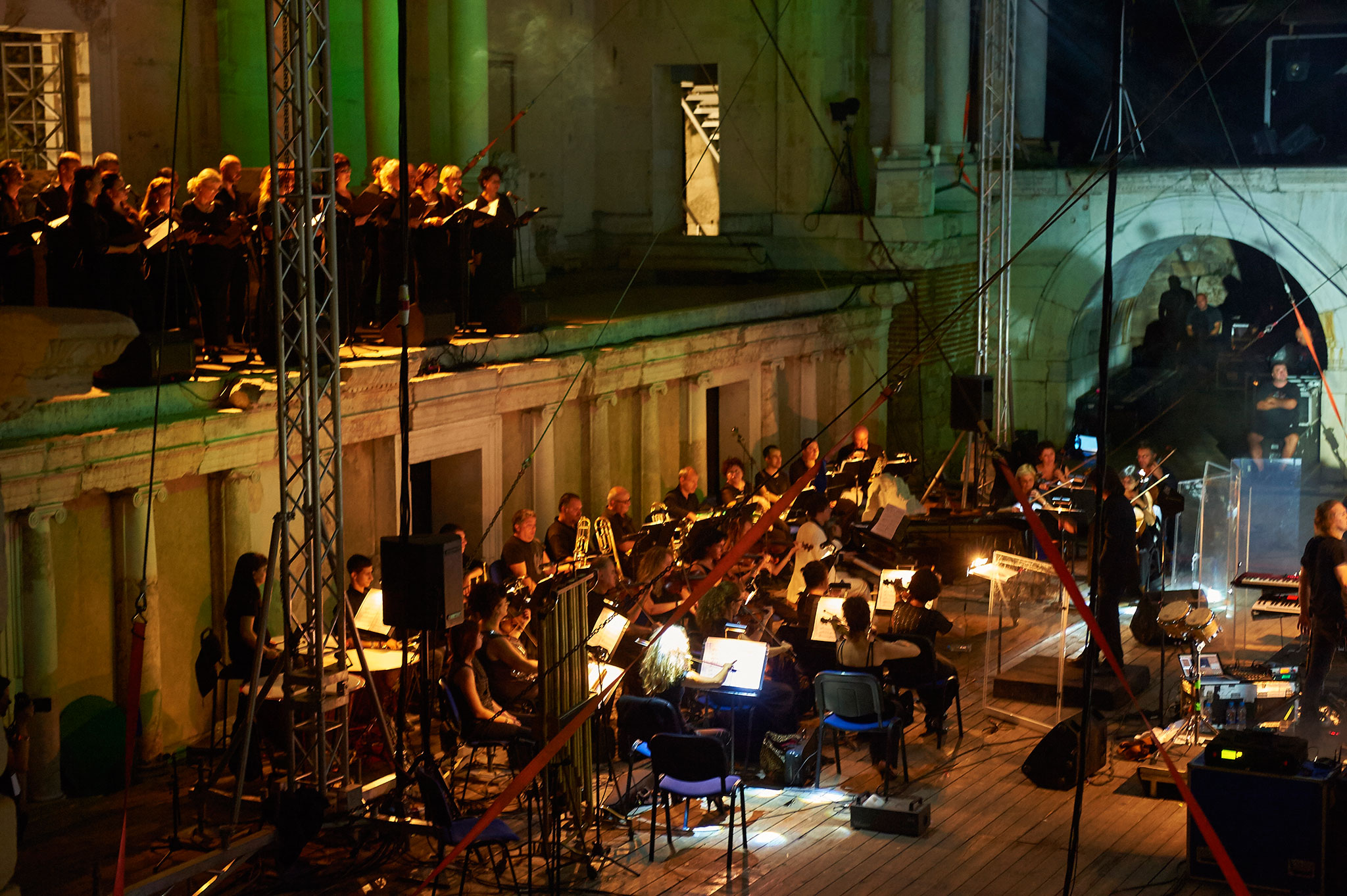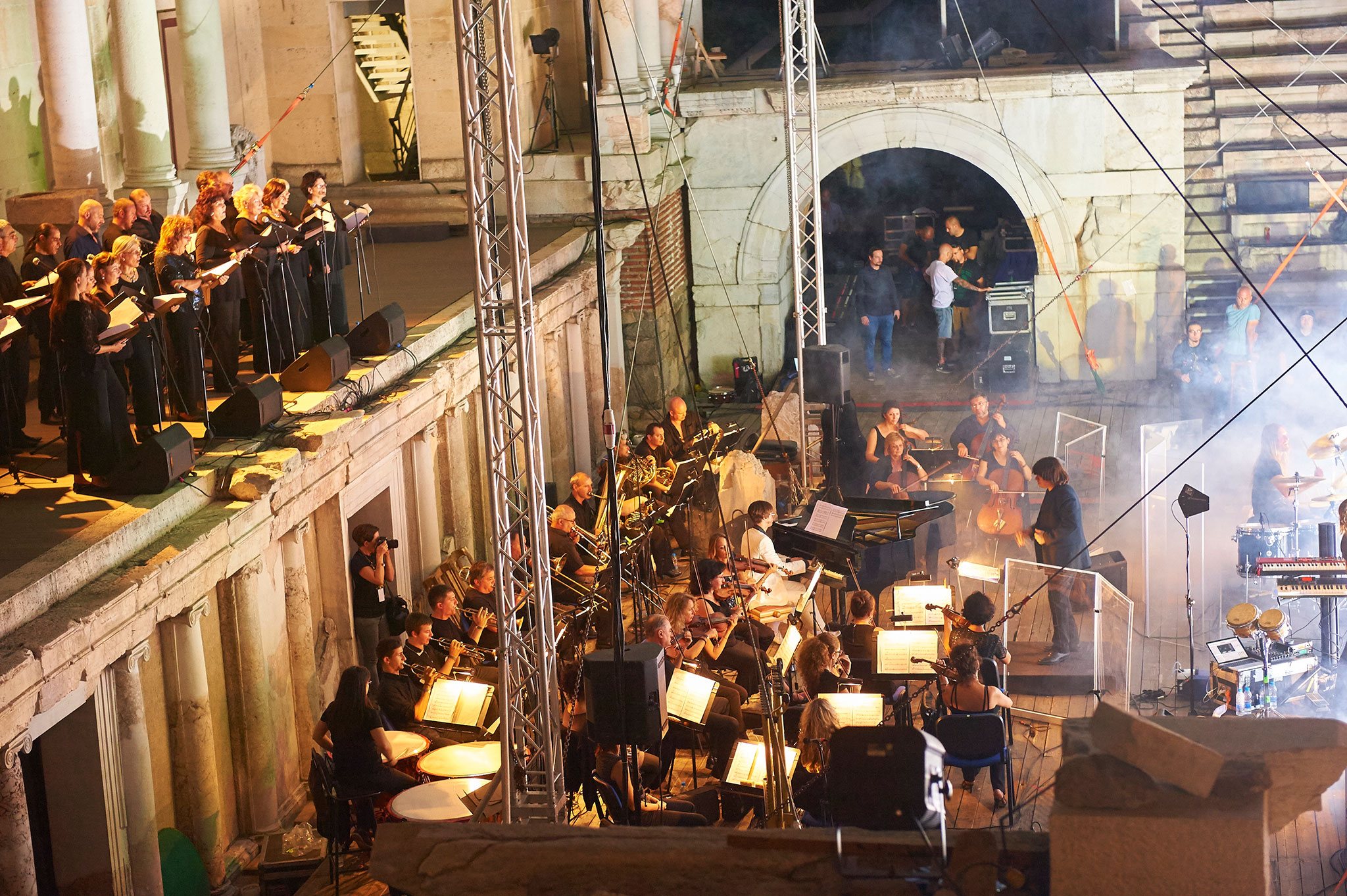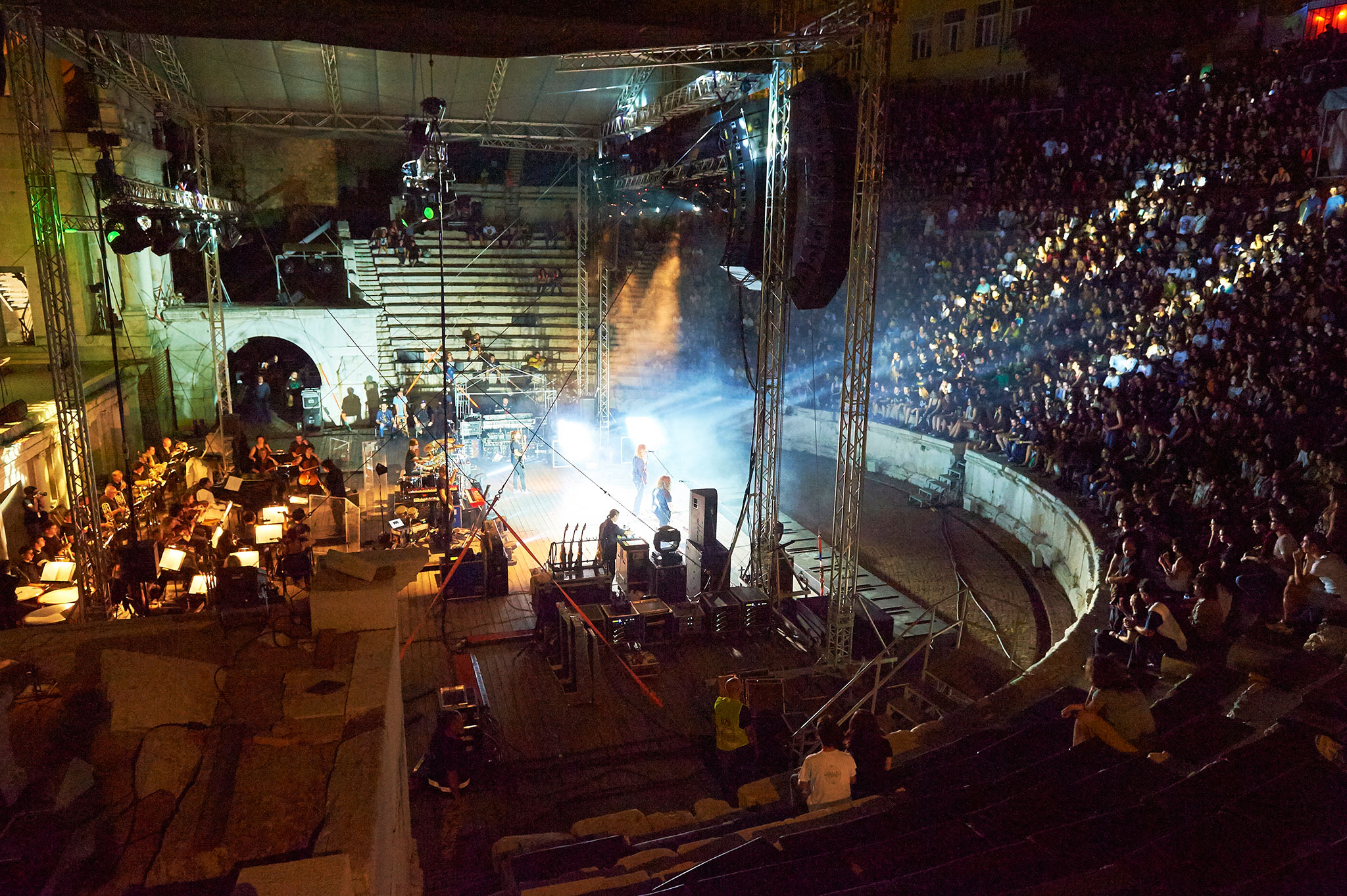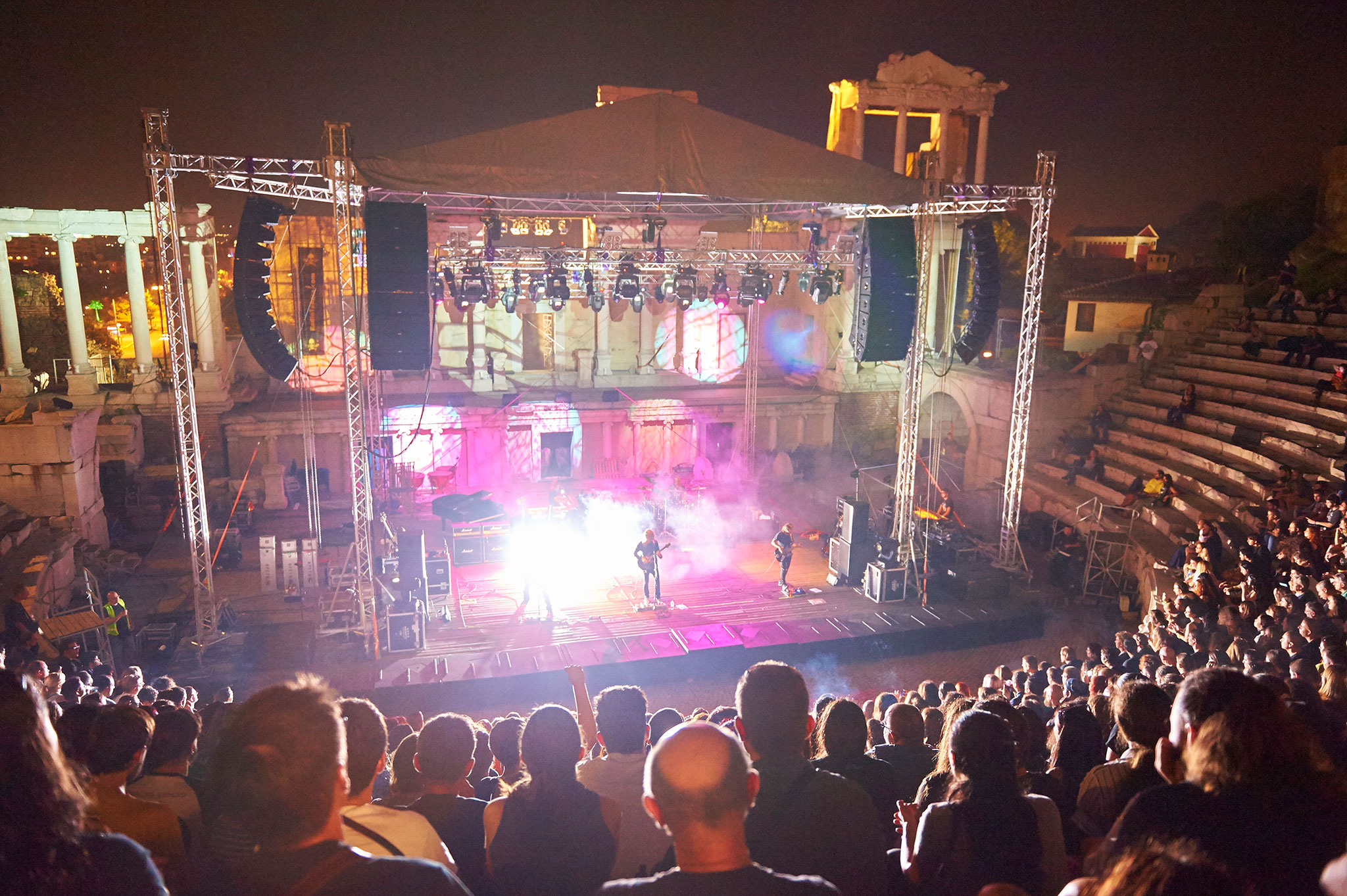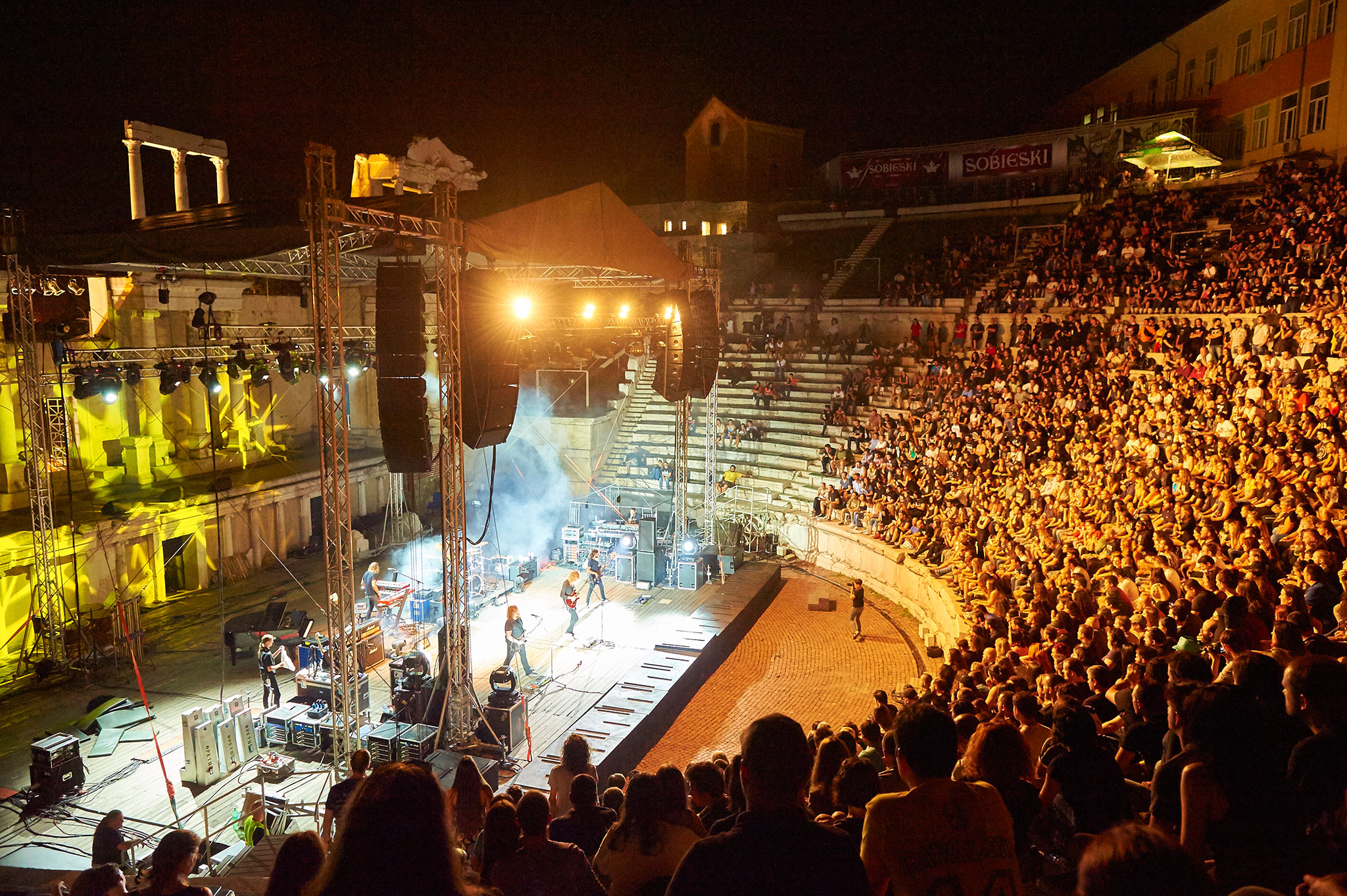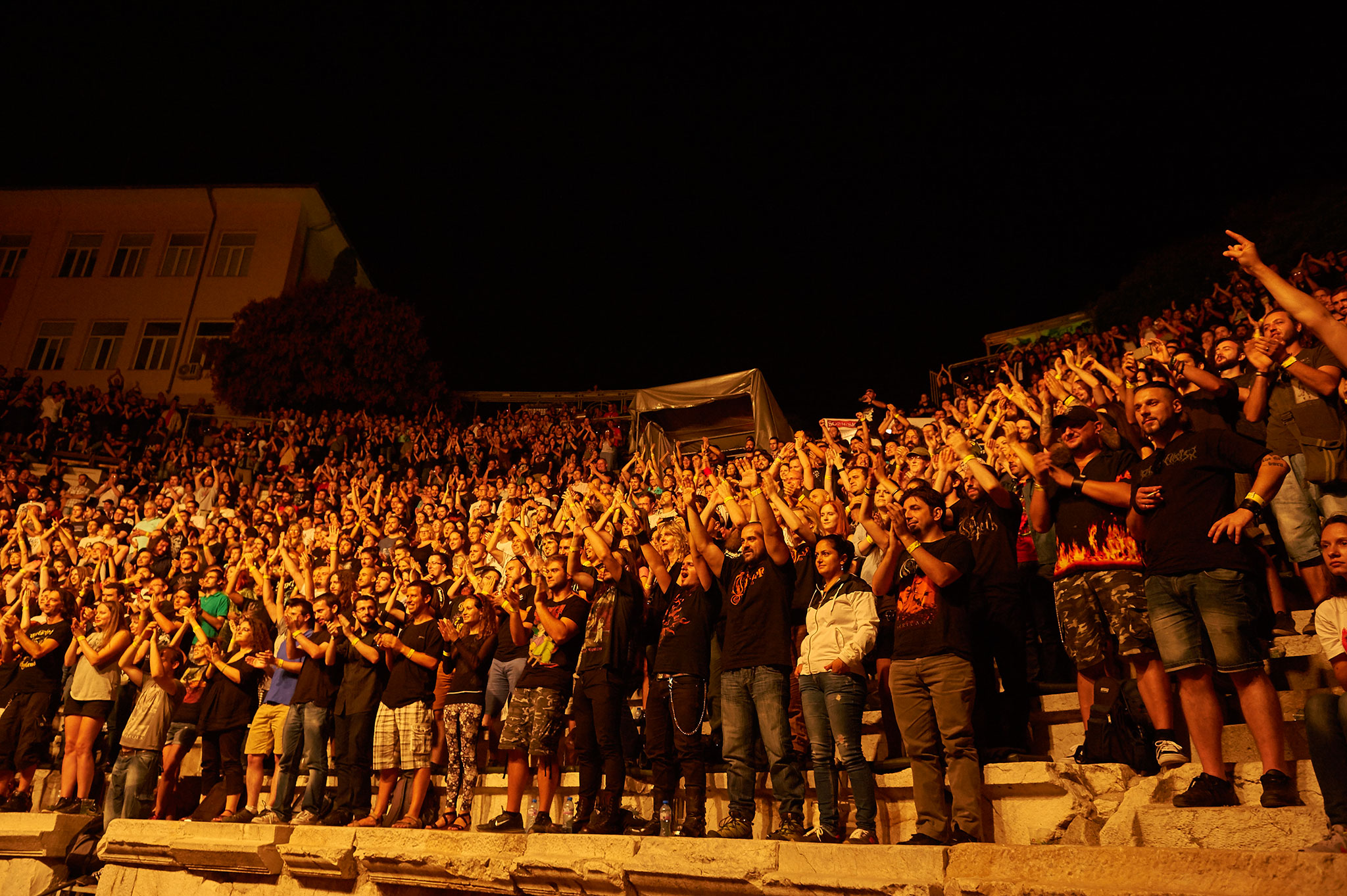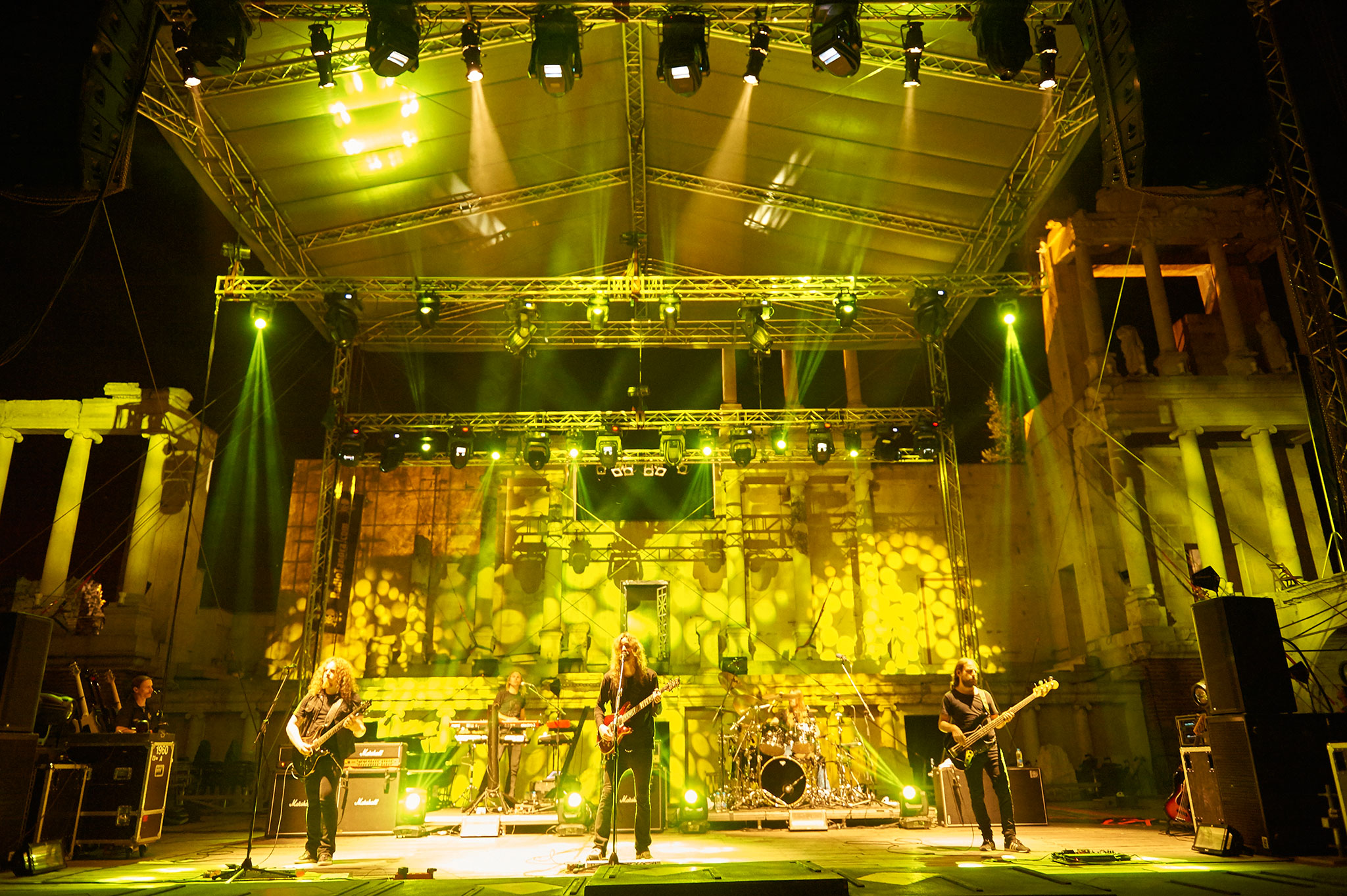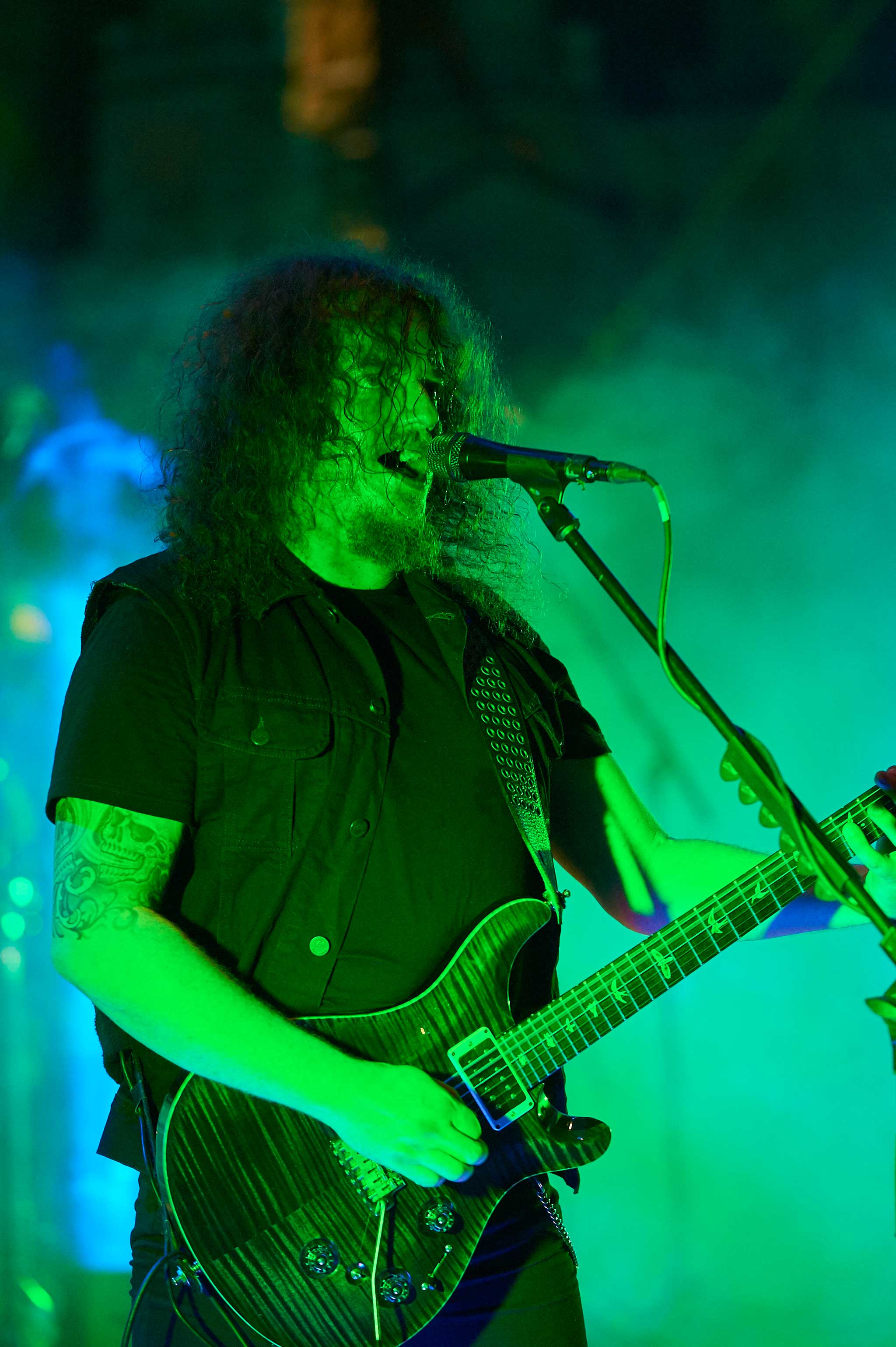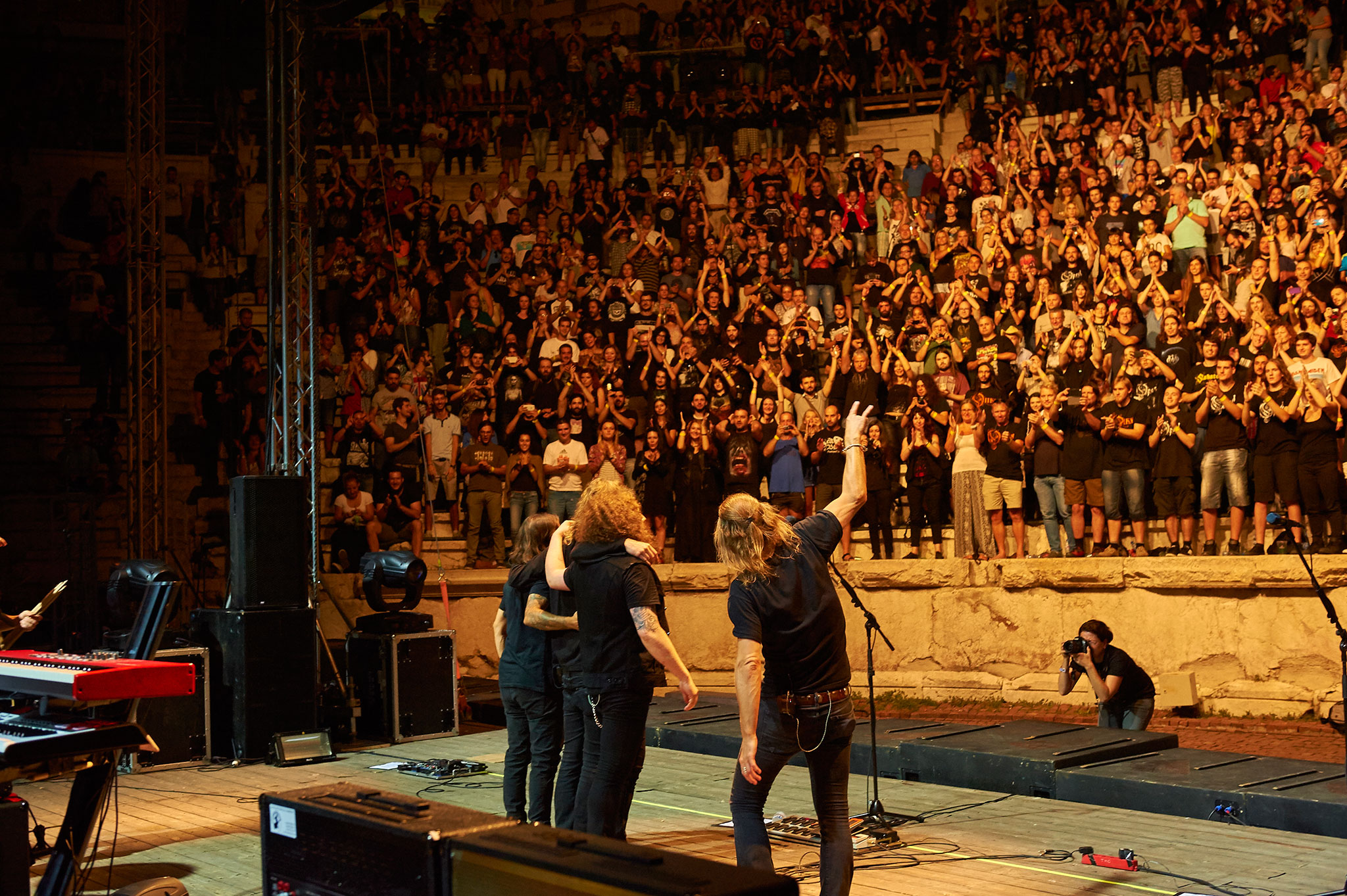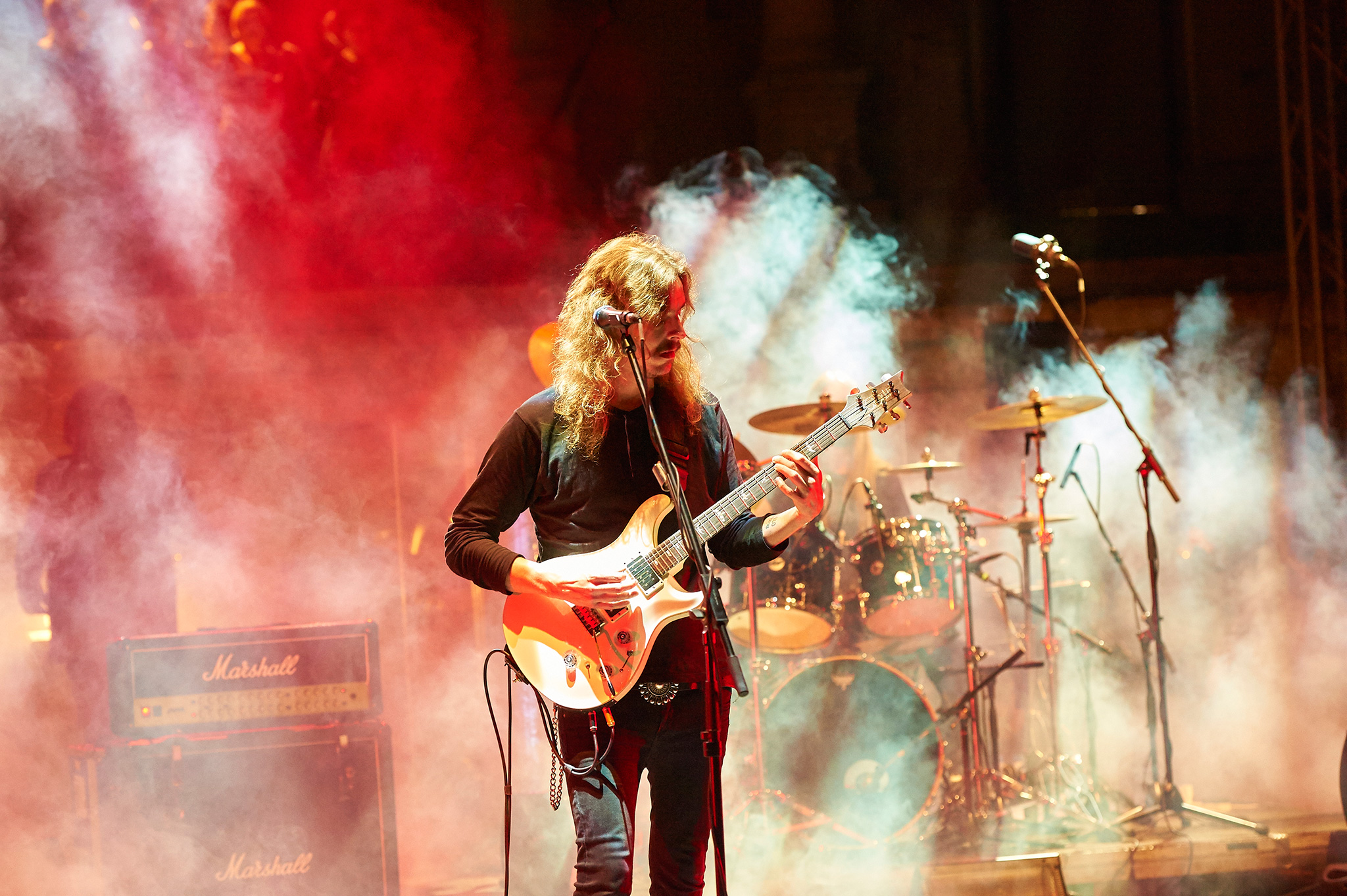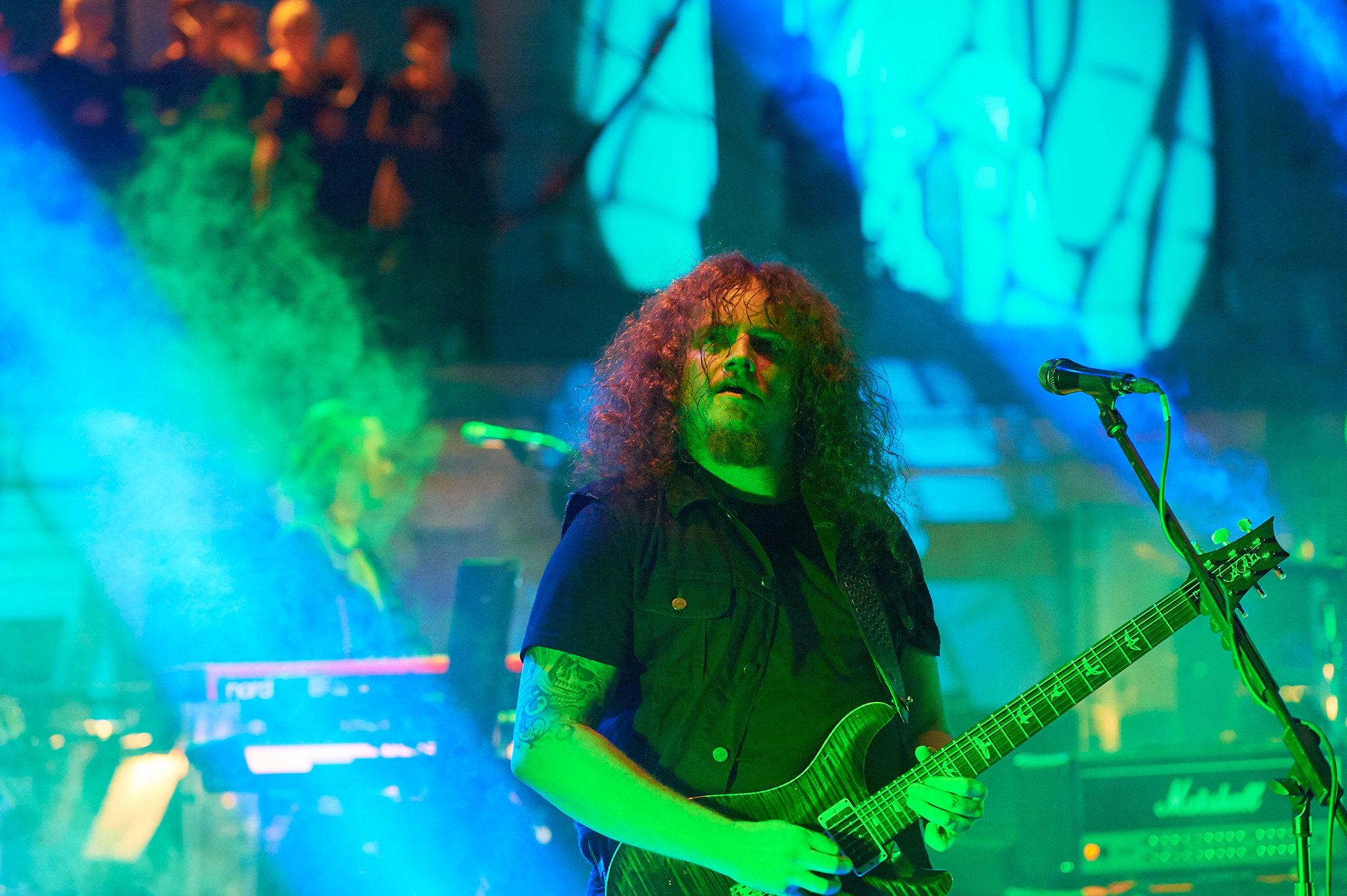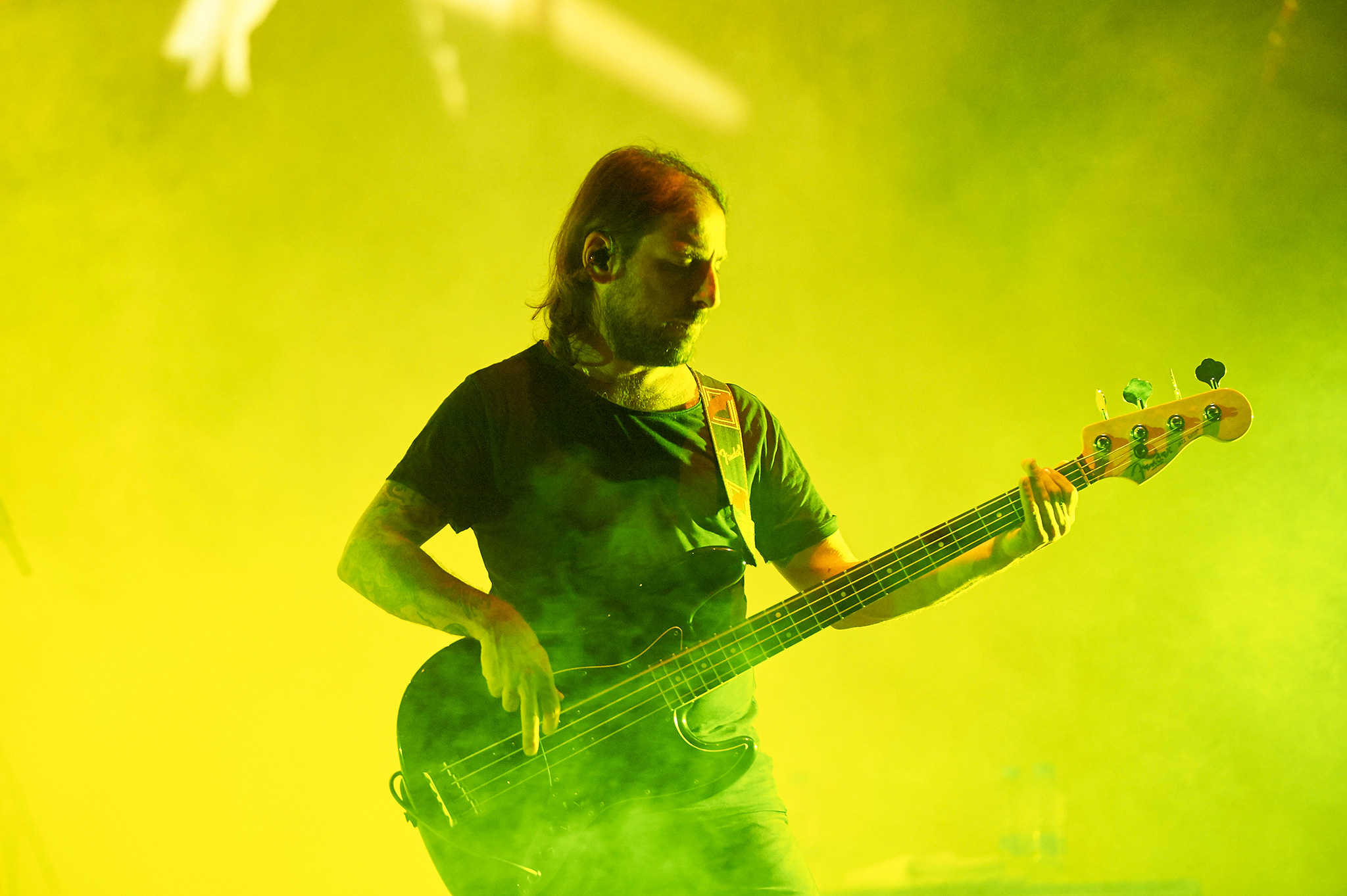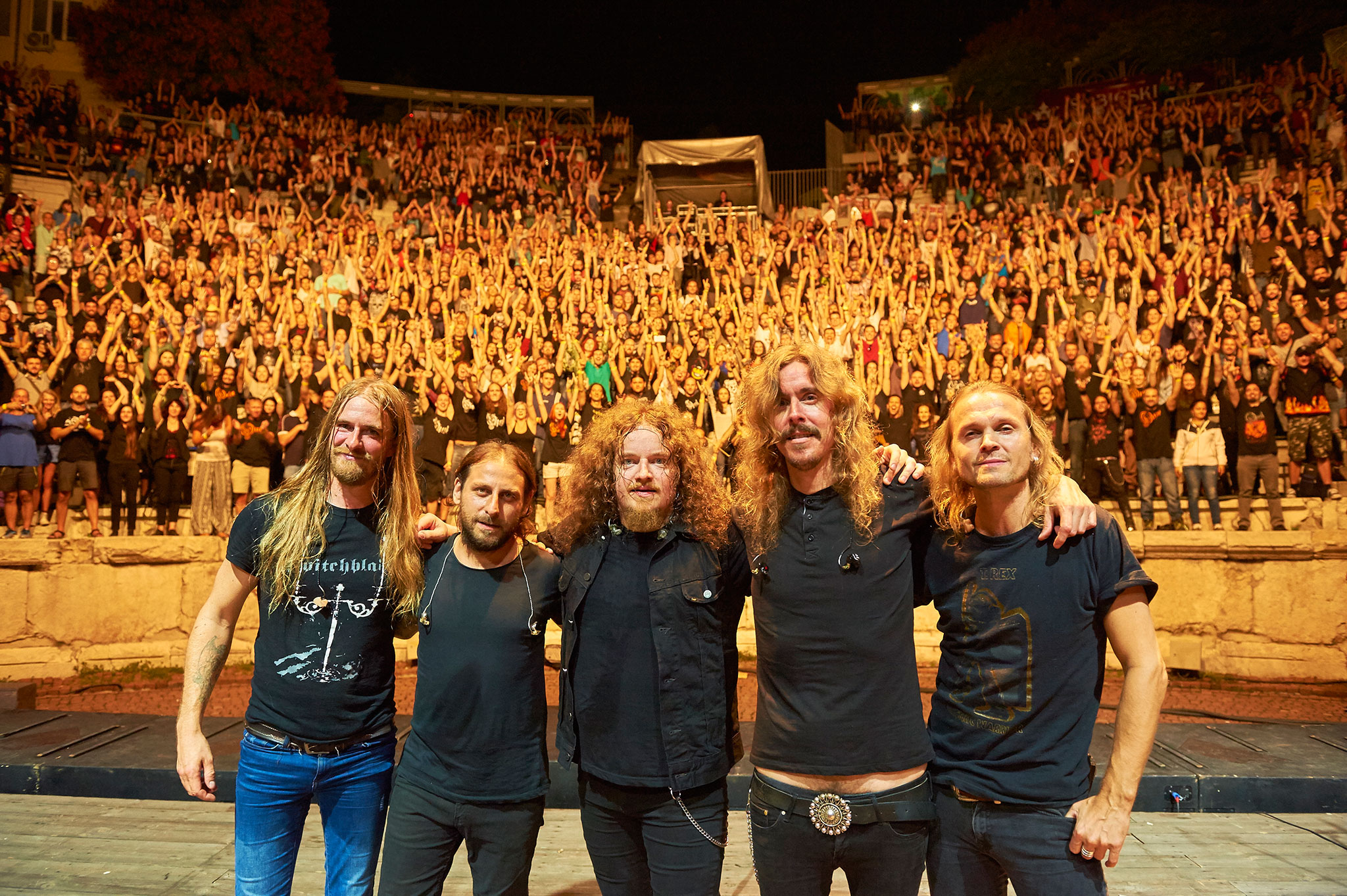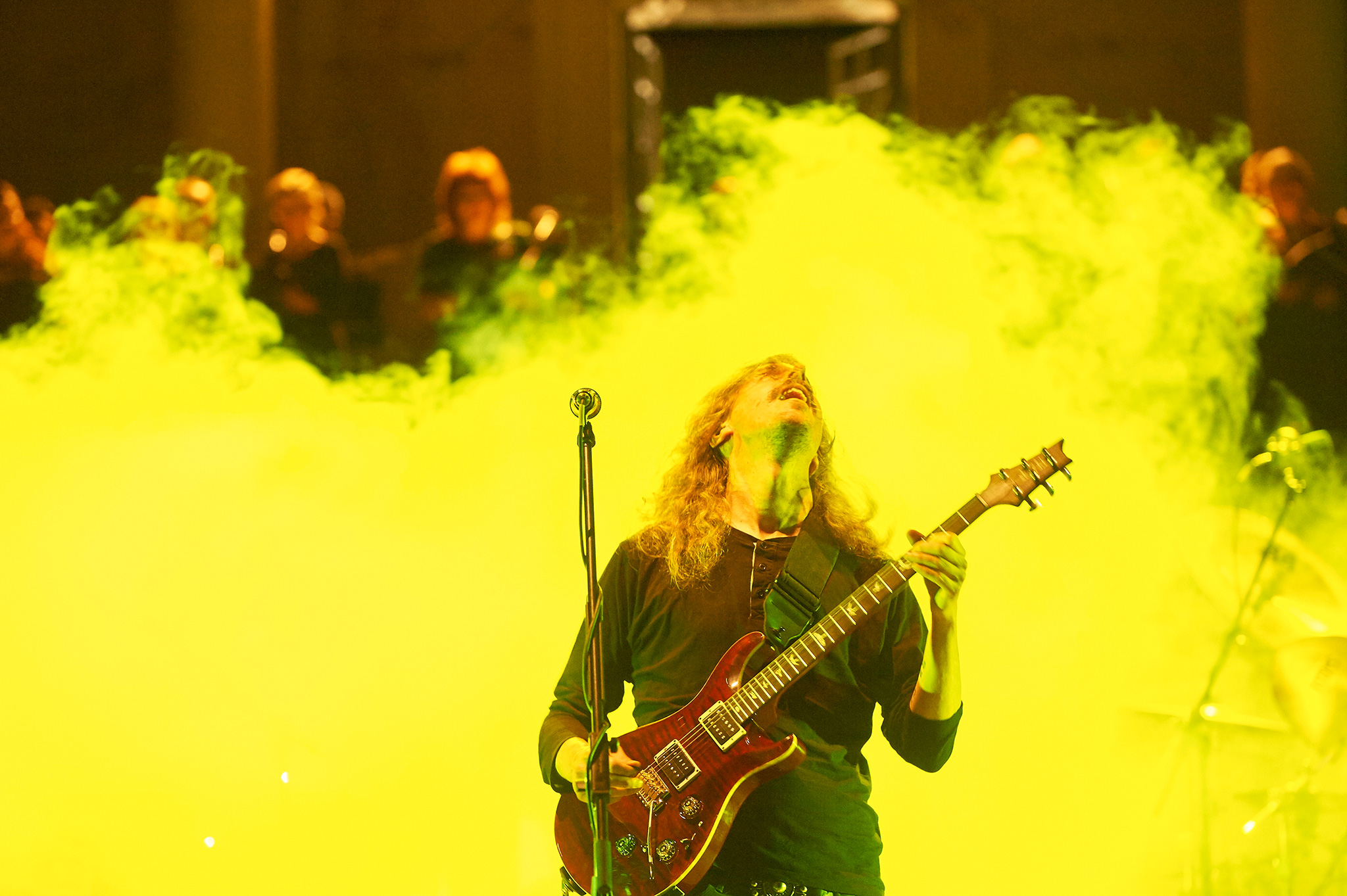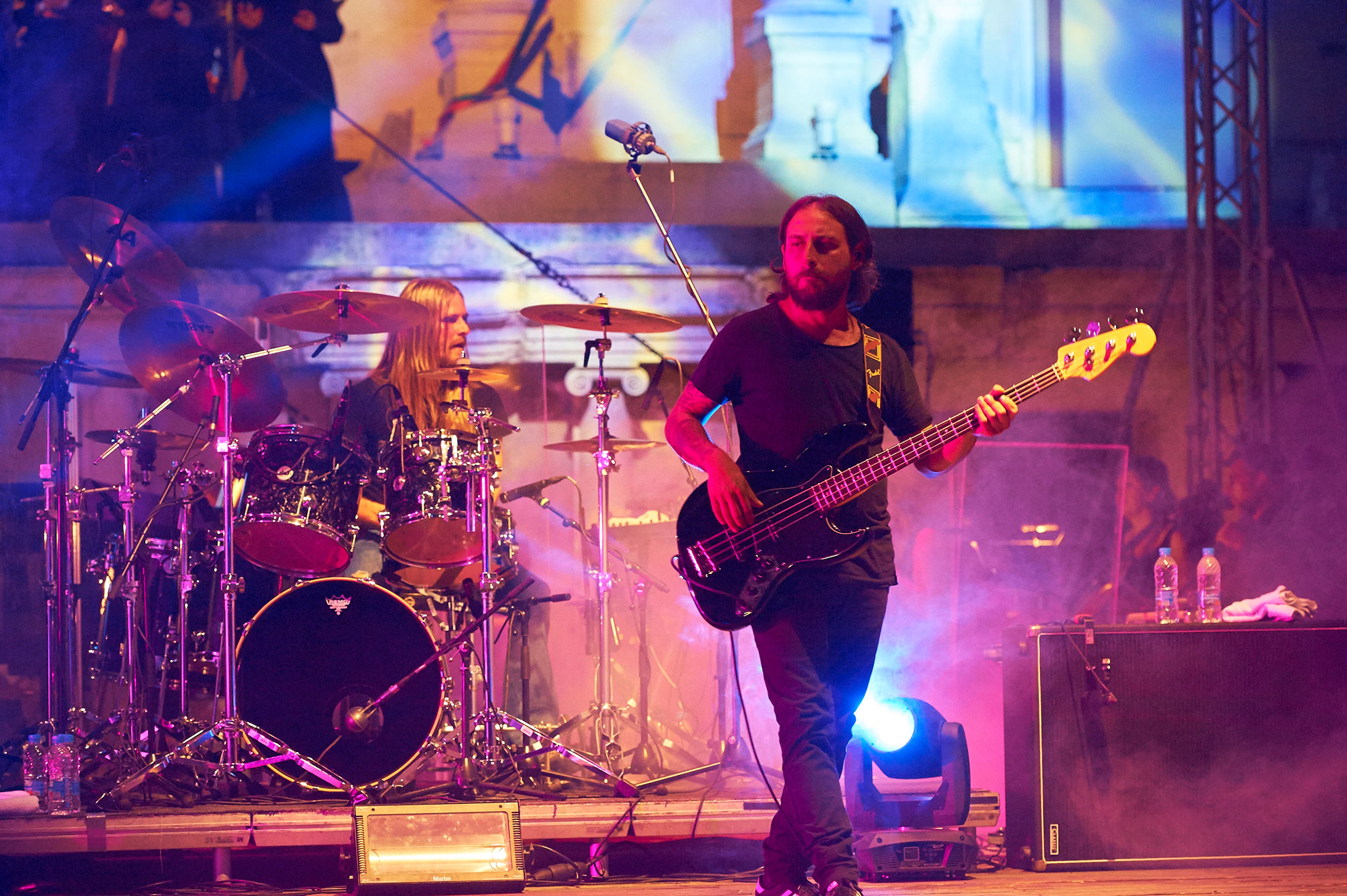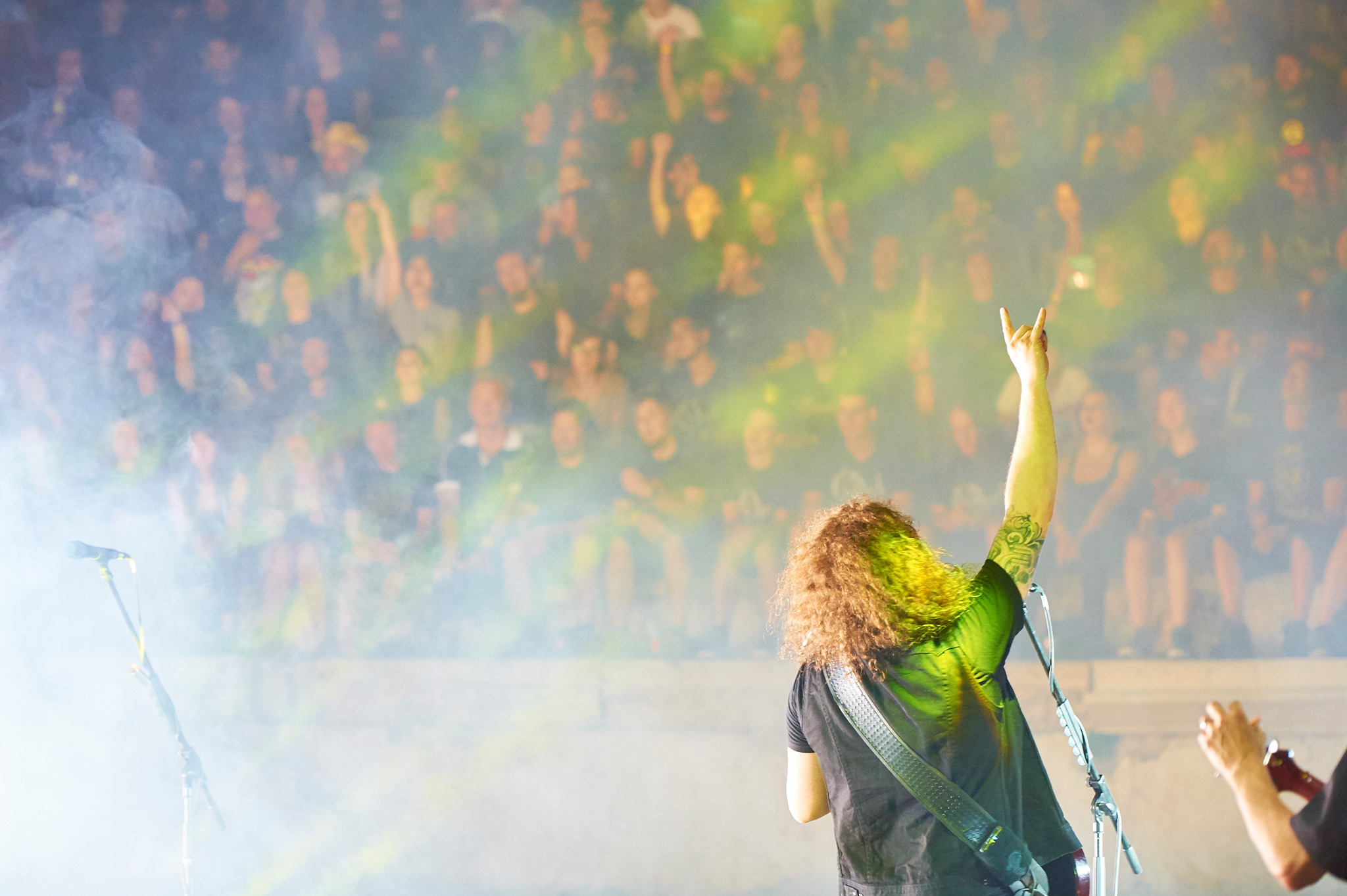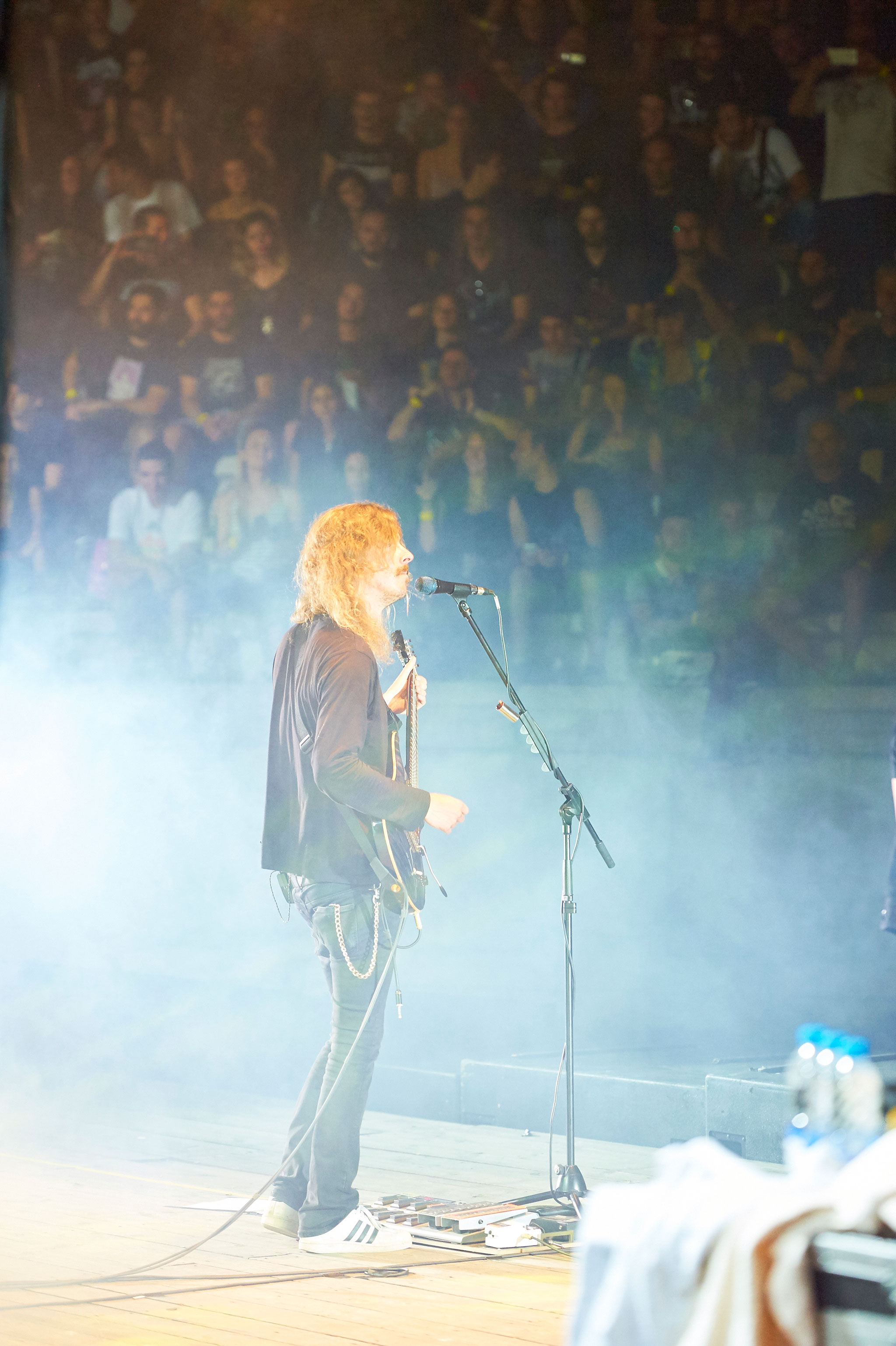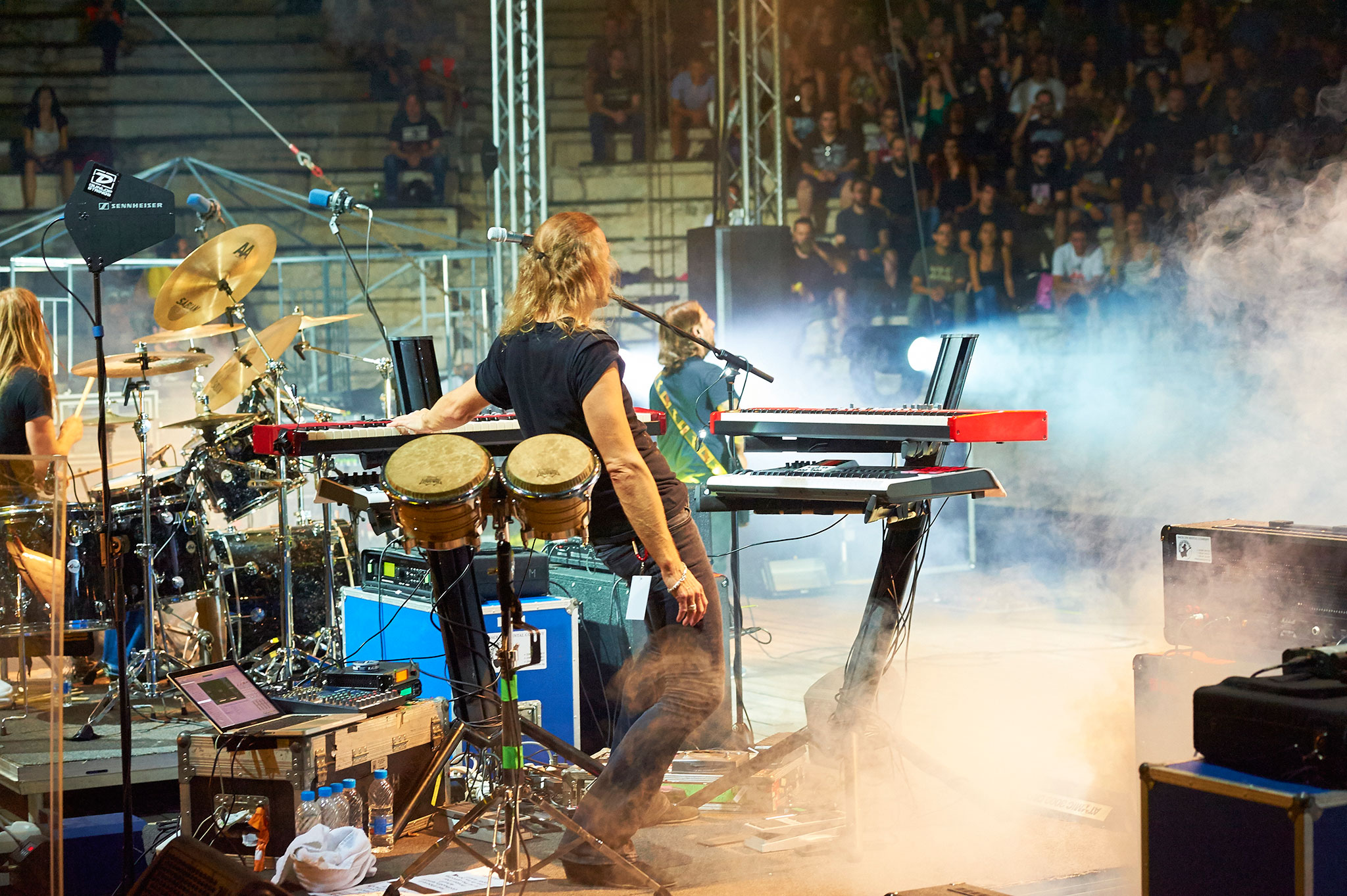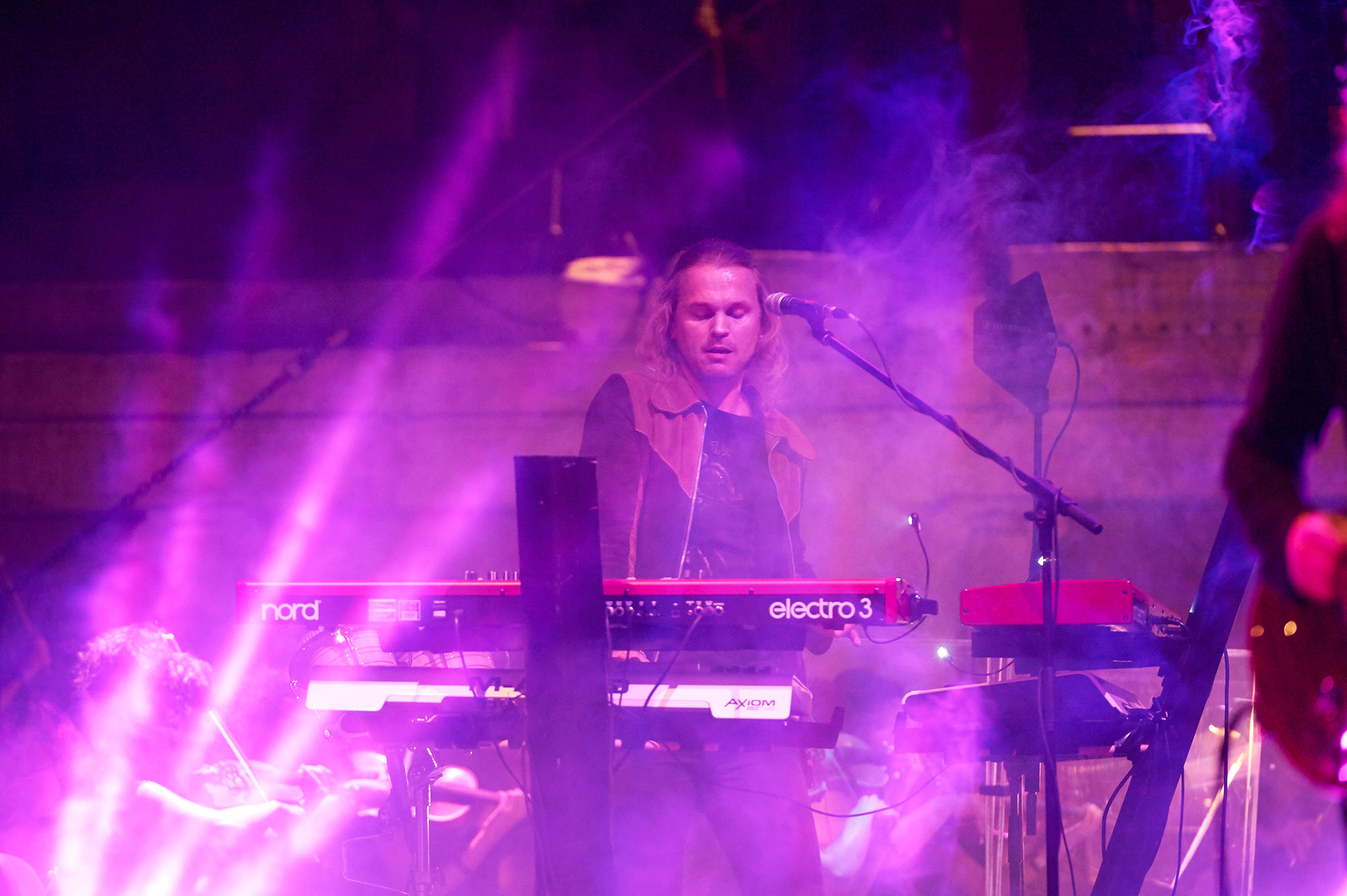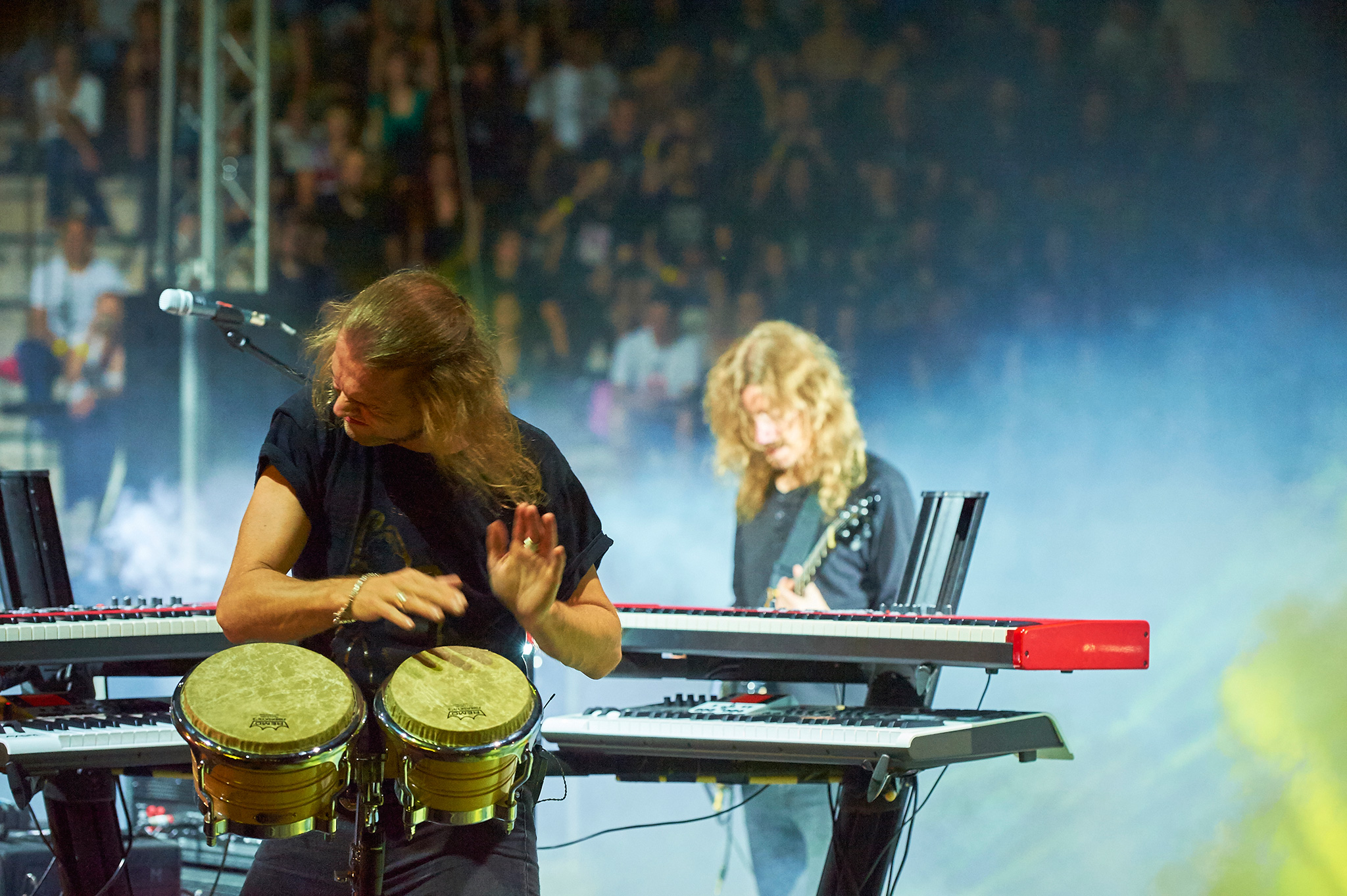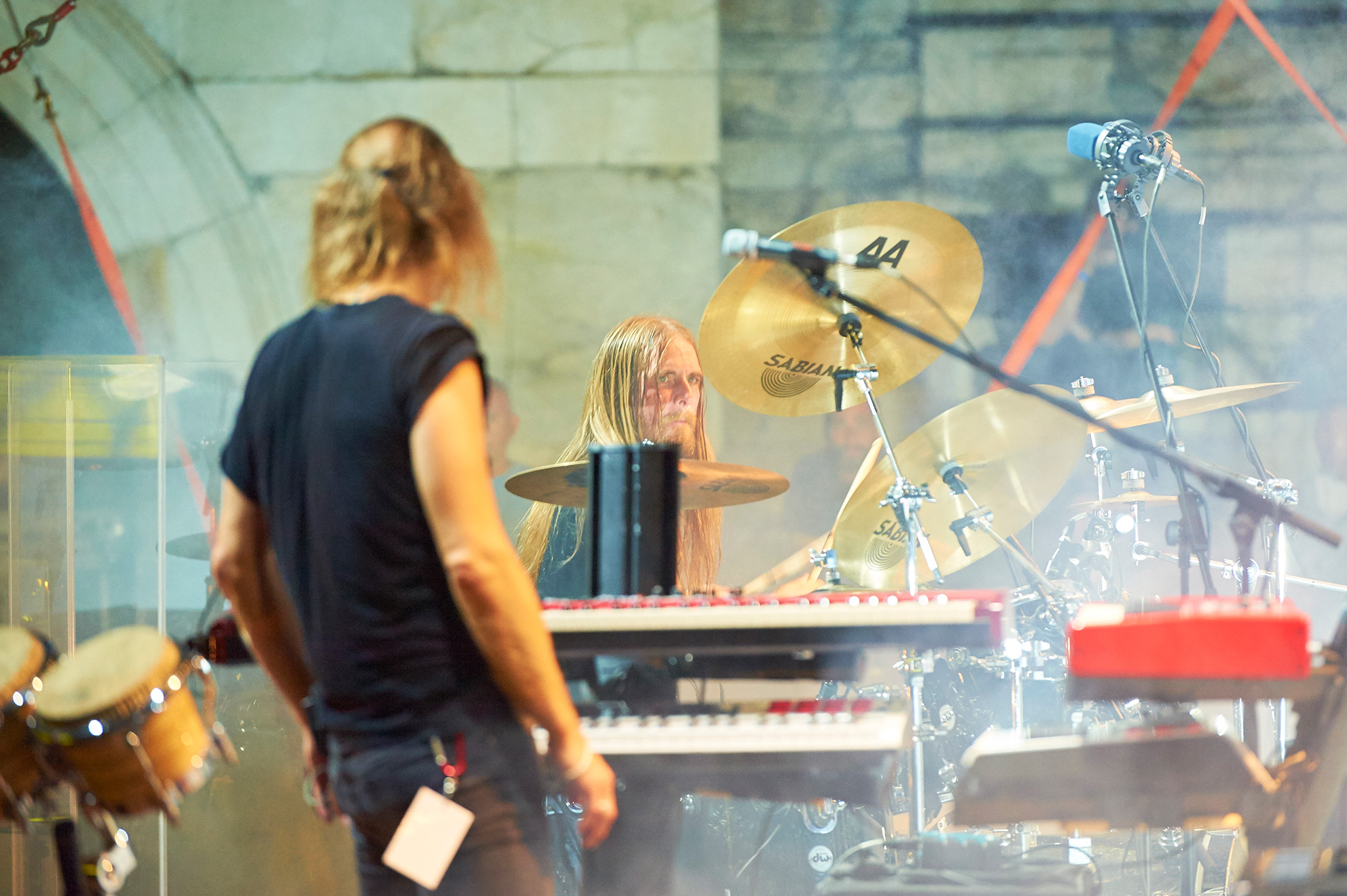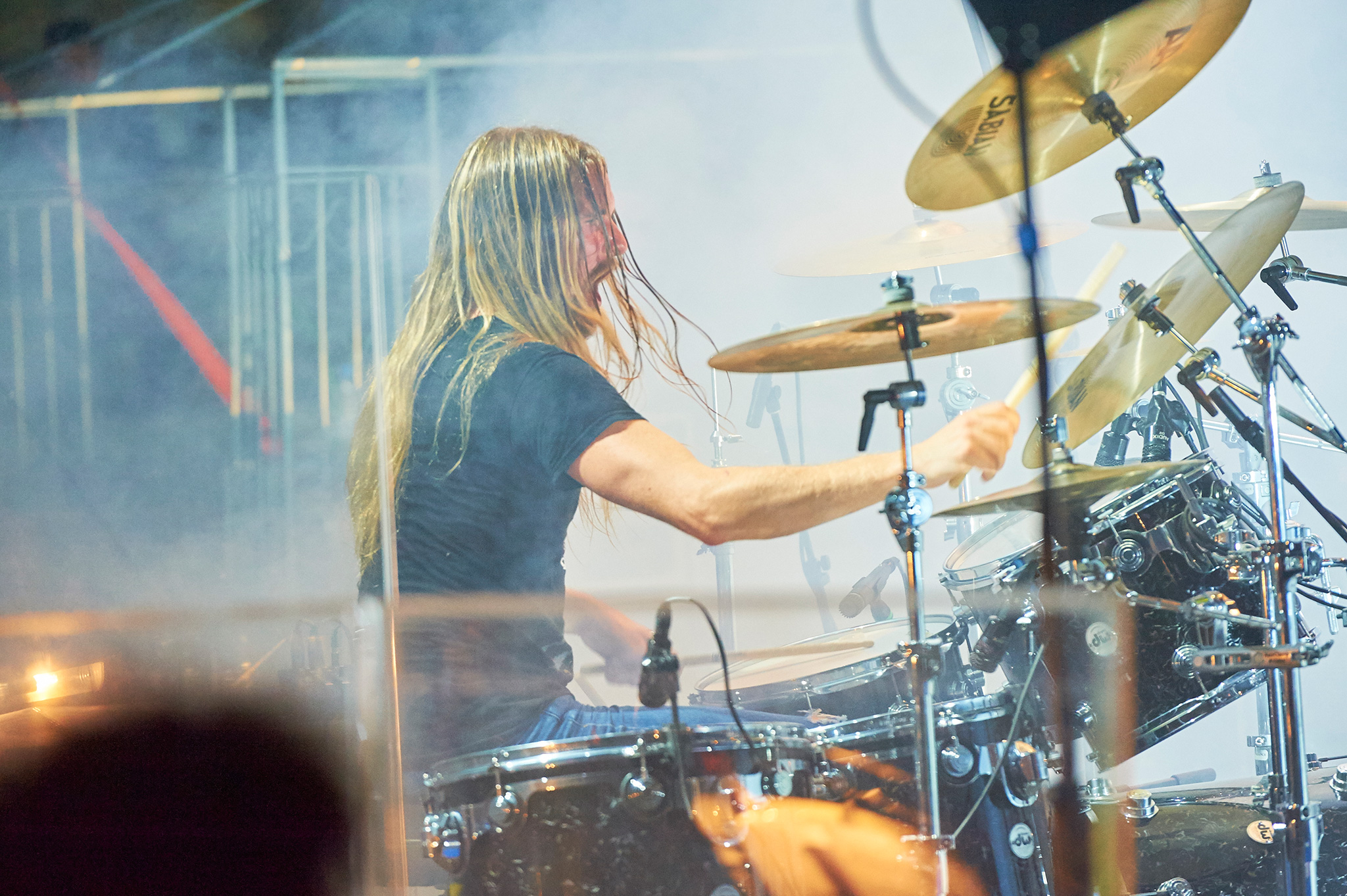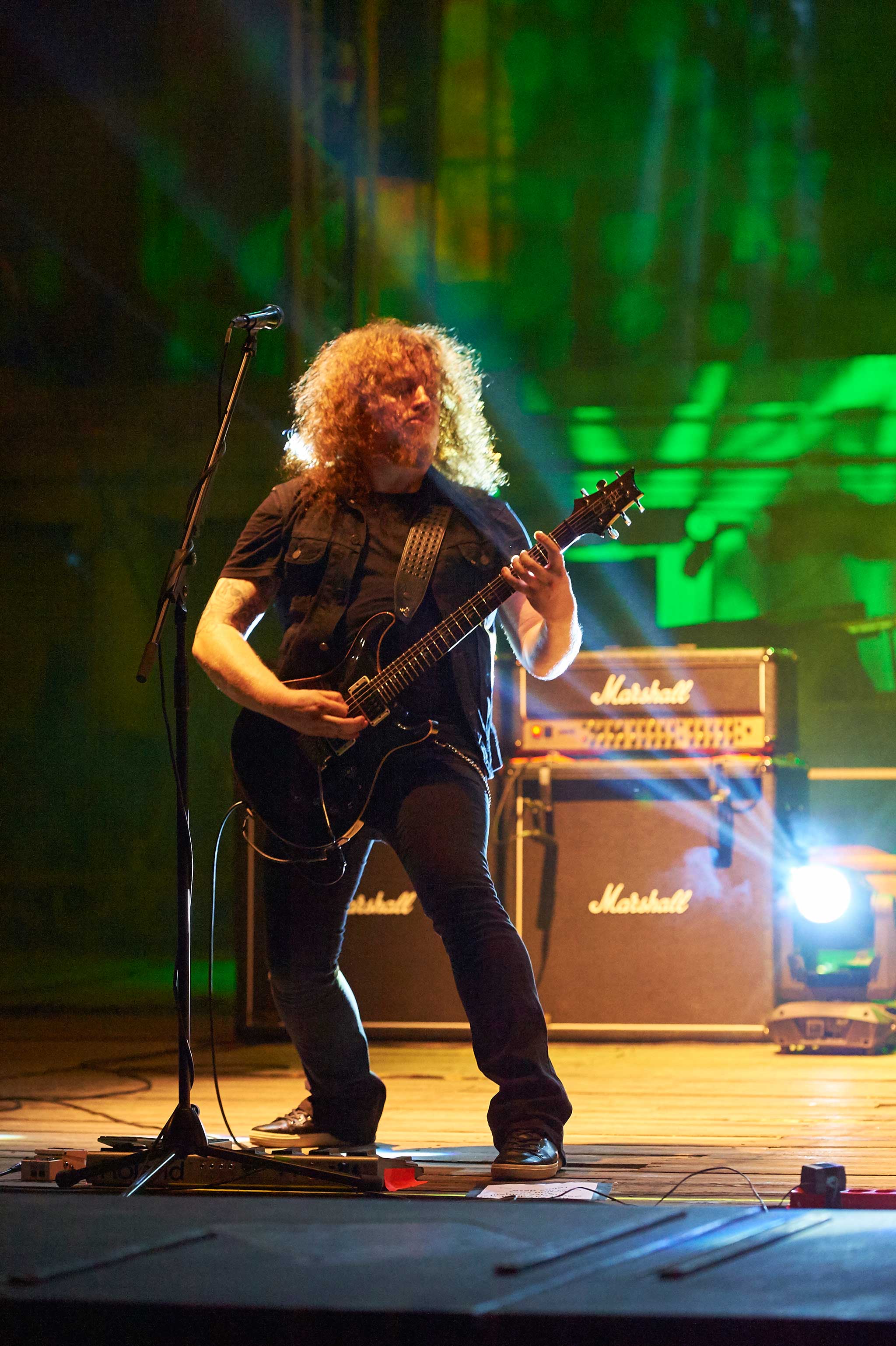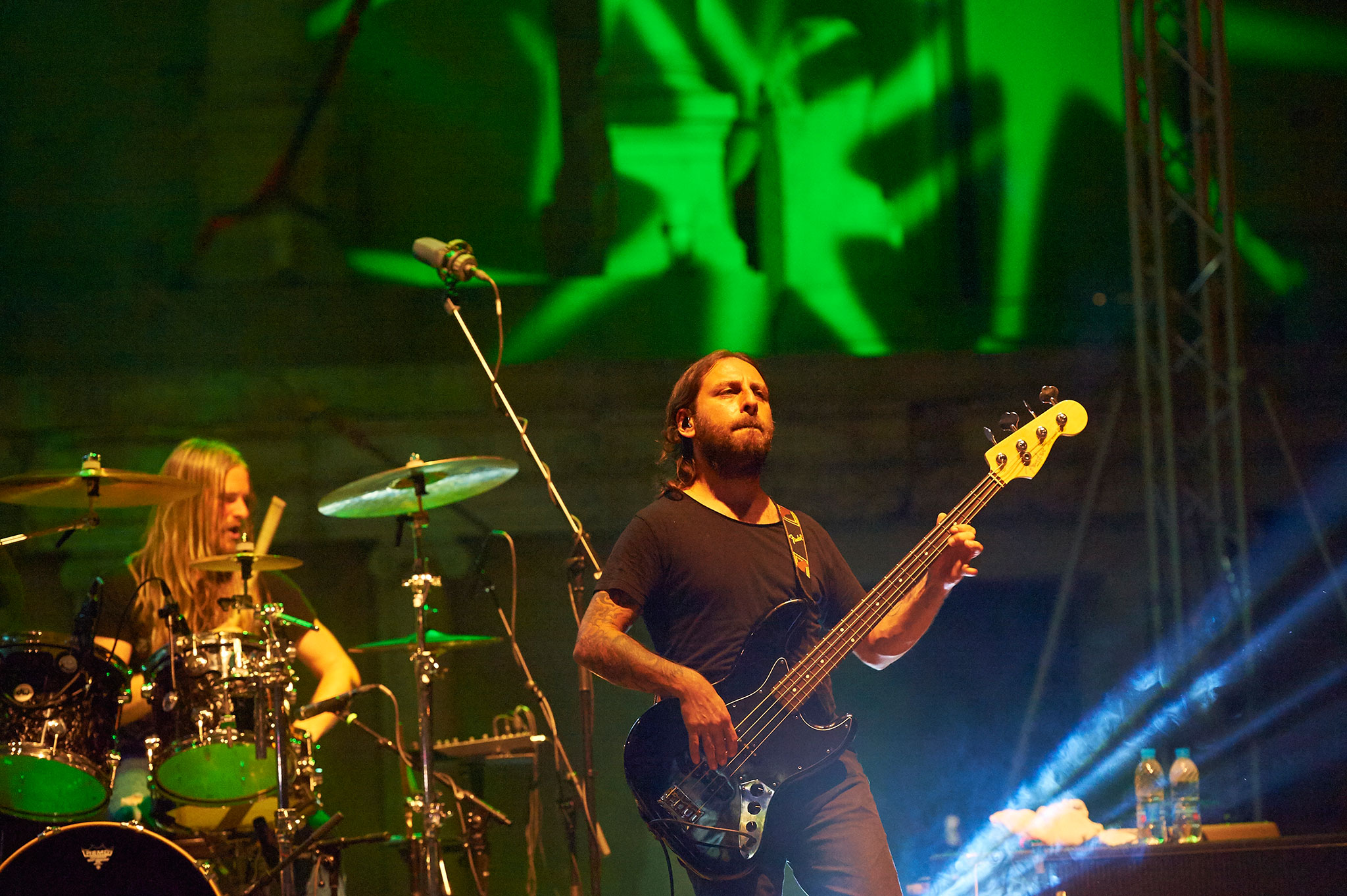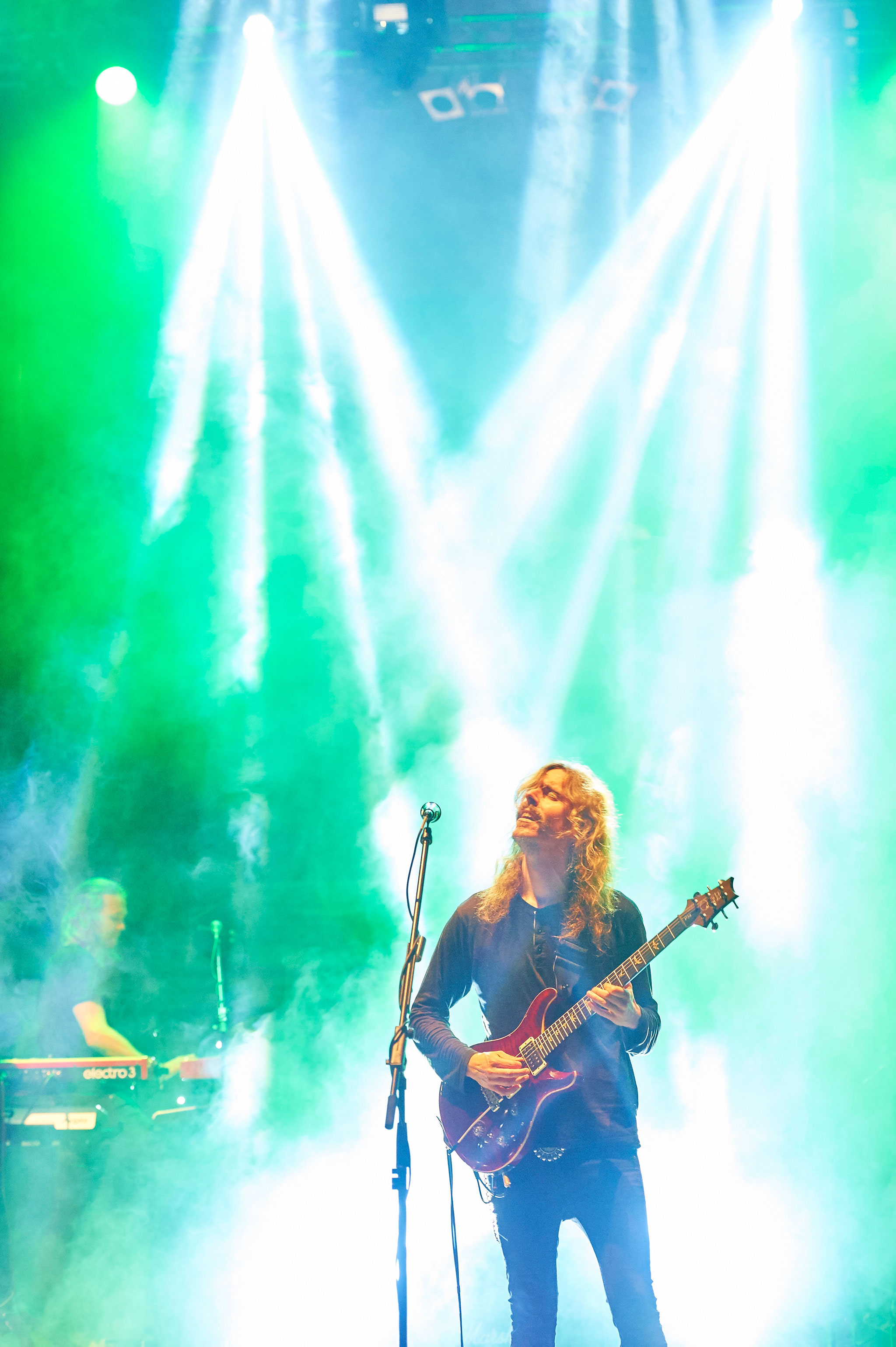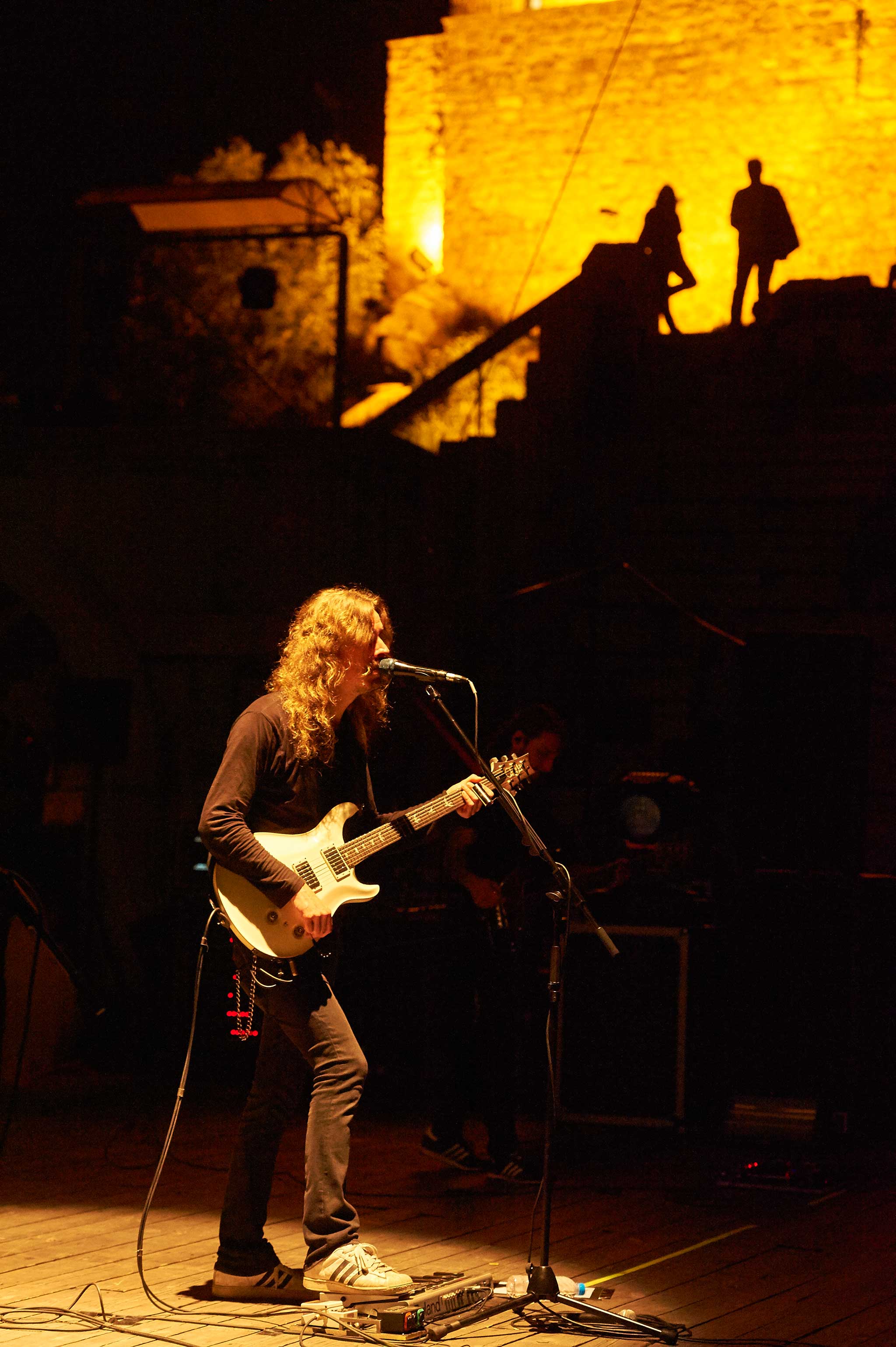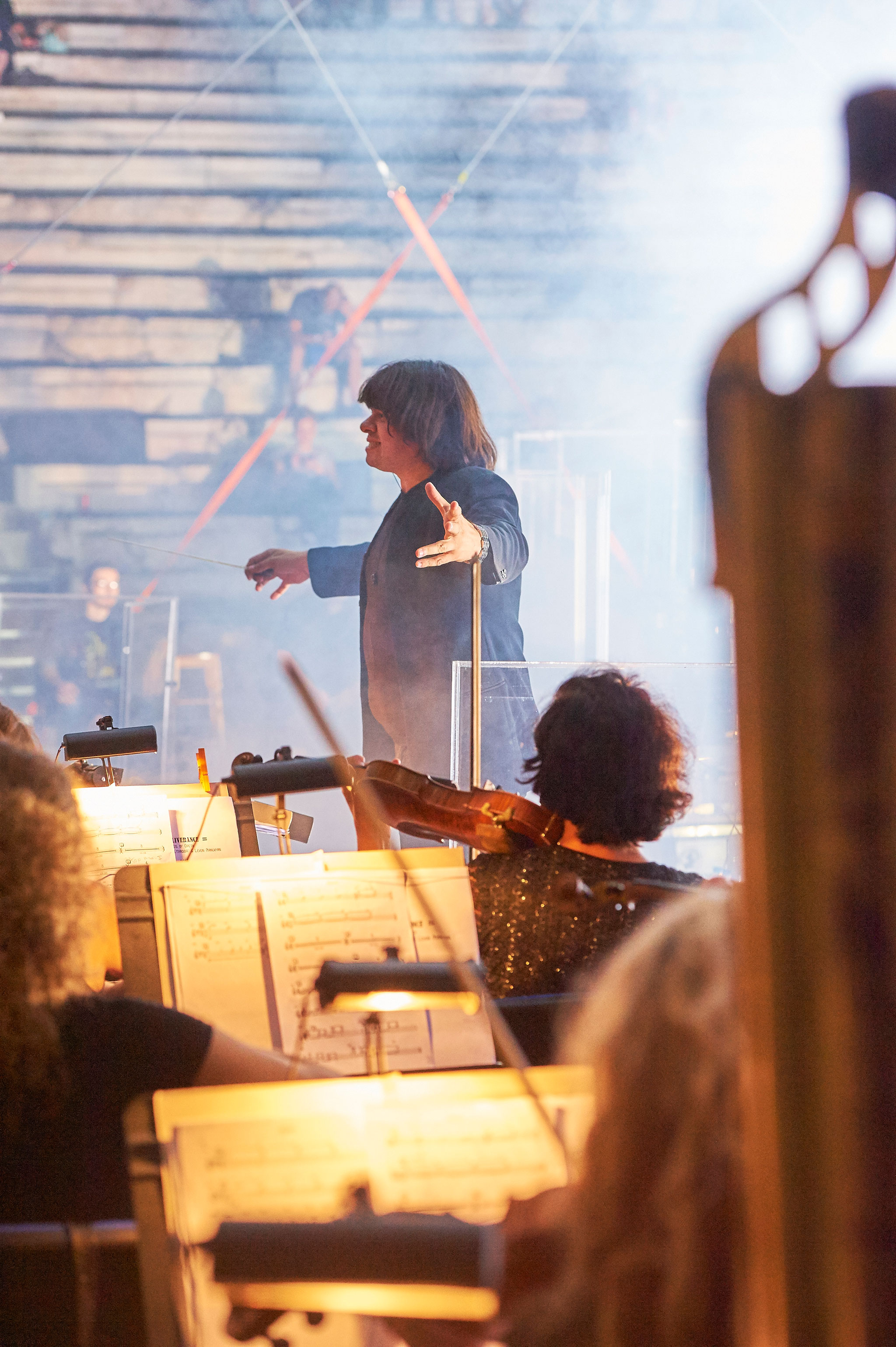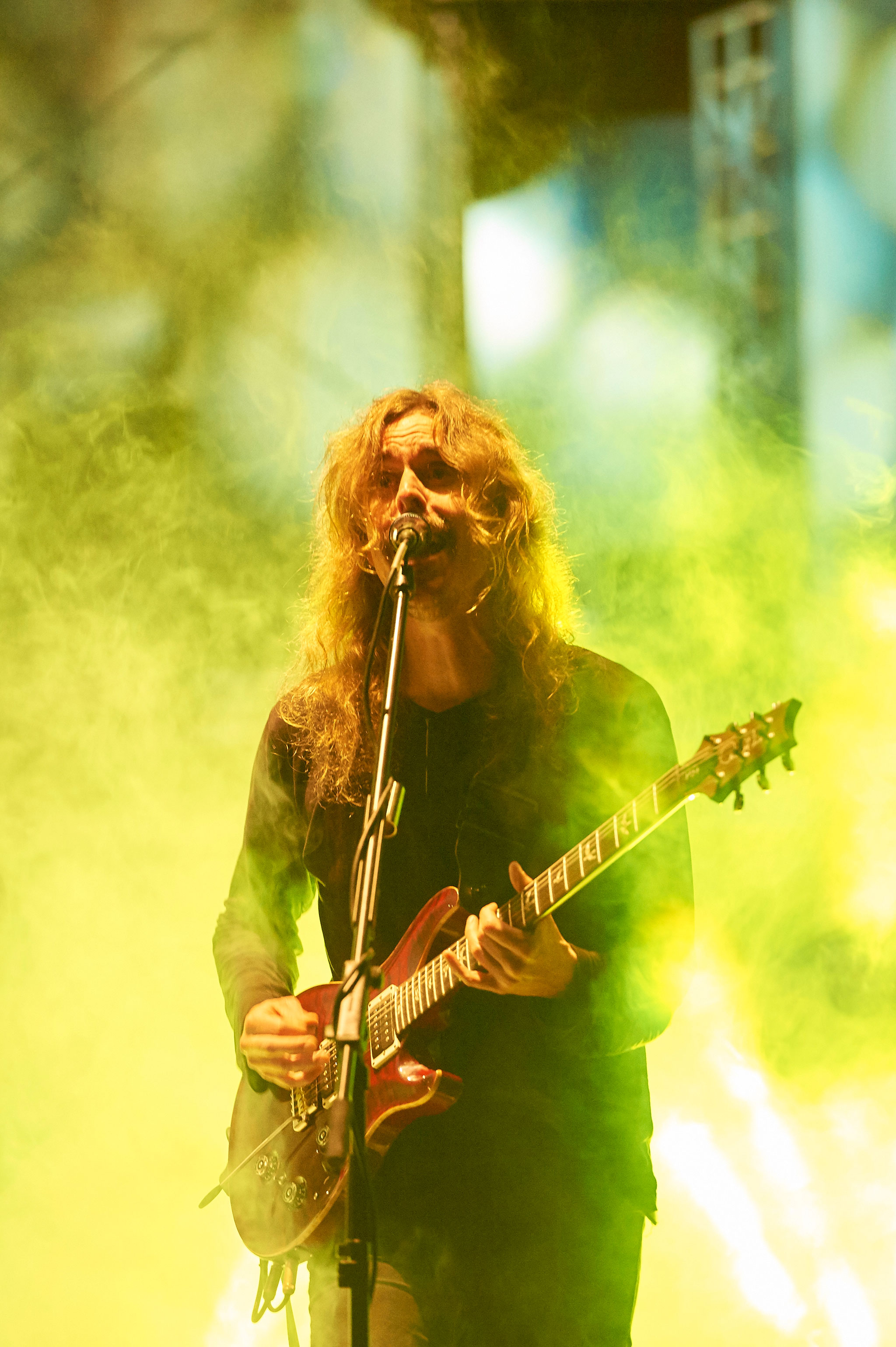Following in the footsteps of their fellow heavy proggers Anathema and Paradise Lost, it’s Opeth’s turn to take on the notoriously impressive amphitheatre in the heart of Bulgaria’s second largest city, Plovdiv.
Among the carefully preserved rows of steep stone seating and carved Roman columns looming above the orchestra, this is quite simply one of Europe’s most stunning visual settings, albeit a health and safety officer’s nightmare.
As night begins to fall and the day’s hot air cools, Opeth start the first part of their set alongside the city’s popular orchestra and choir, dressed in black and conducted by Levon Manukyan, who is greeted like a true Bulgarian rock star.
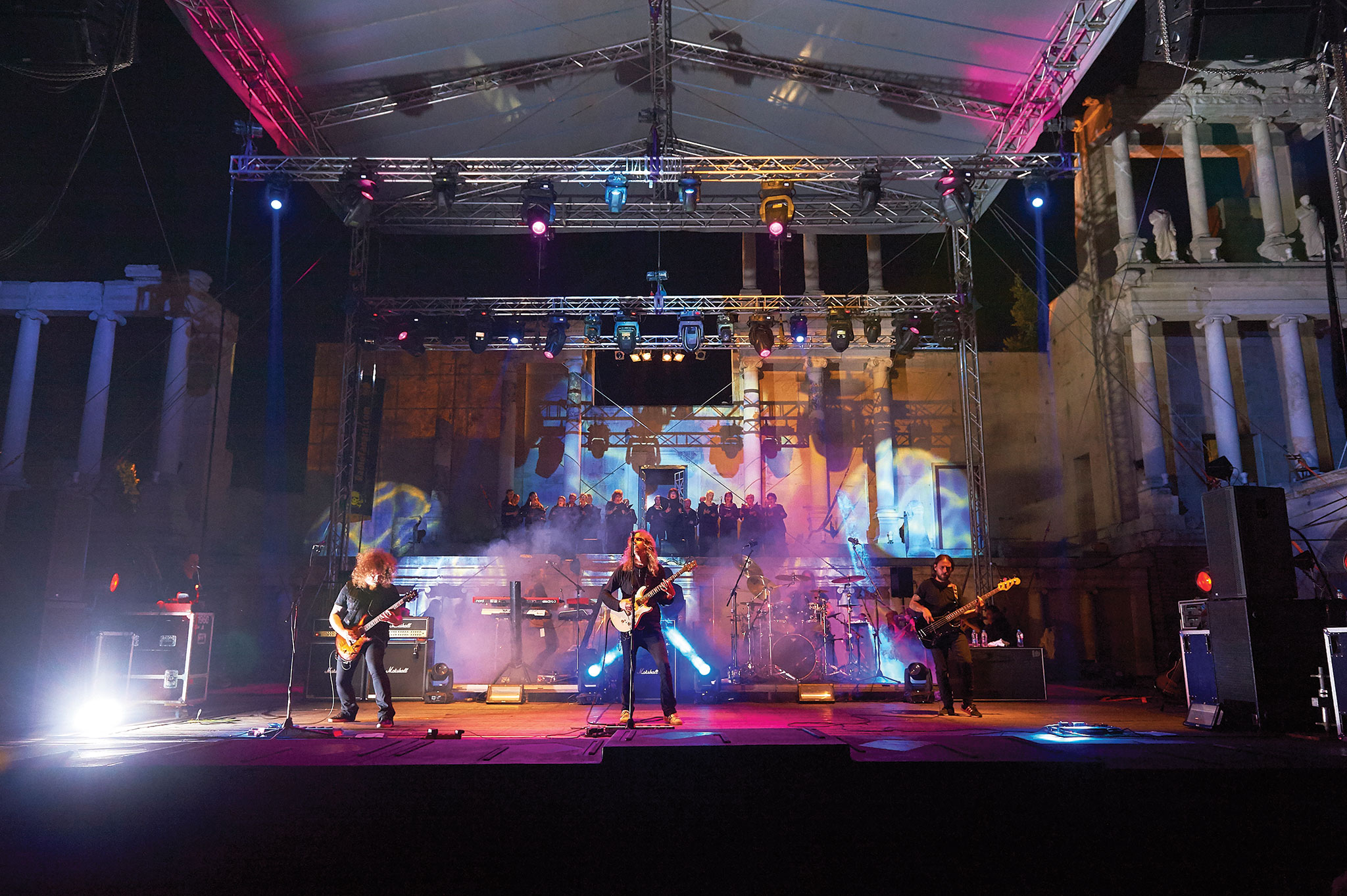
From the very first notes of Eternal Rains Will Come, the Bulgarian crowd go wild, reacting to the perfect correlation between Opeth’s roaring guitars and the sound of crazed violins. During Cusp Of Eternity, Martin Axenrot’s drumming acts as a frame for the melodic farrago of notes pounding within the amphitheatre. The whole magical experience brings a new depth to an already complex musical equation.
It’s hard to believe that the band and conductor had met barely 24 hours before. Through a confused exchange of emails and brief encounters the previous afternoon, Opeth were unaware of Manukyan’s arrangements of their songs and admitted their apprehensiveness on the way to the rehearsal at the State Opera House. However, after four hours of rehearsing and a heavy diet of coffee breaks imposed by the orchestra’s union, the result is even better than expected, and all parties are delighted. It could be said that the music is, in fact, not lost in translation after all.
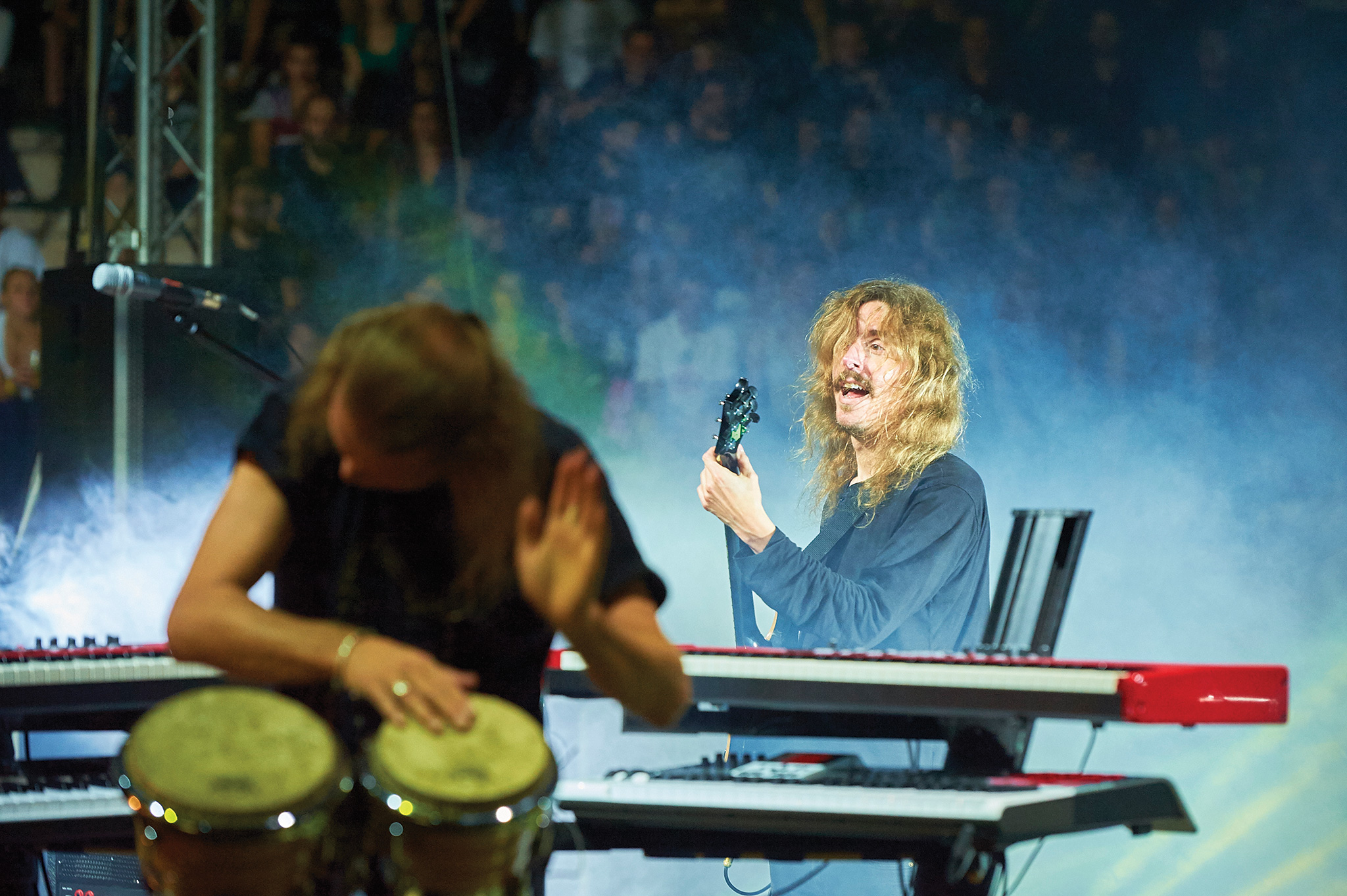
Demon Of The Fall and The Devil’s Orchard are two darker songs in the set that really implode with the orchestra’s added mystical energy, creating an almost church-like atmosphere. Mikael Åkerfeldt’s growls echo through the violins and then hearing 4,000 fans yelling ‘God is dead’ in unison, as the cellos grate away under a crimson stage light, with Joakim Svalberg’s added prog keyboard solos and Åkerfeldt’s repeated riffs, is the most hypnotic Opeth have ever sounded.
Martin Mendez’s bass captures the intensity created by the trumpets and piano. This combines with Fredrik Åkesson’s compelling guitar work throughout, most notably during Deliverance, which gets them a standing ovation. Opeth’s addictive ode to Black Sabbath, The Grand Conjuration from the album Ghost Reveries, is a convincing peek at what we can expect at the London Palladium this month.
As the orchestra leave and Opeth begin their usual concert material, with an eclectic song range, Åkerfeldt modestly states: “We feel naked without our orchestra.” This is an inevitable collaboration between two powerful entities, and Opeth have raised the bar once again.
